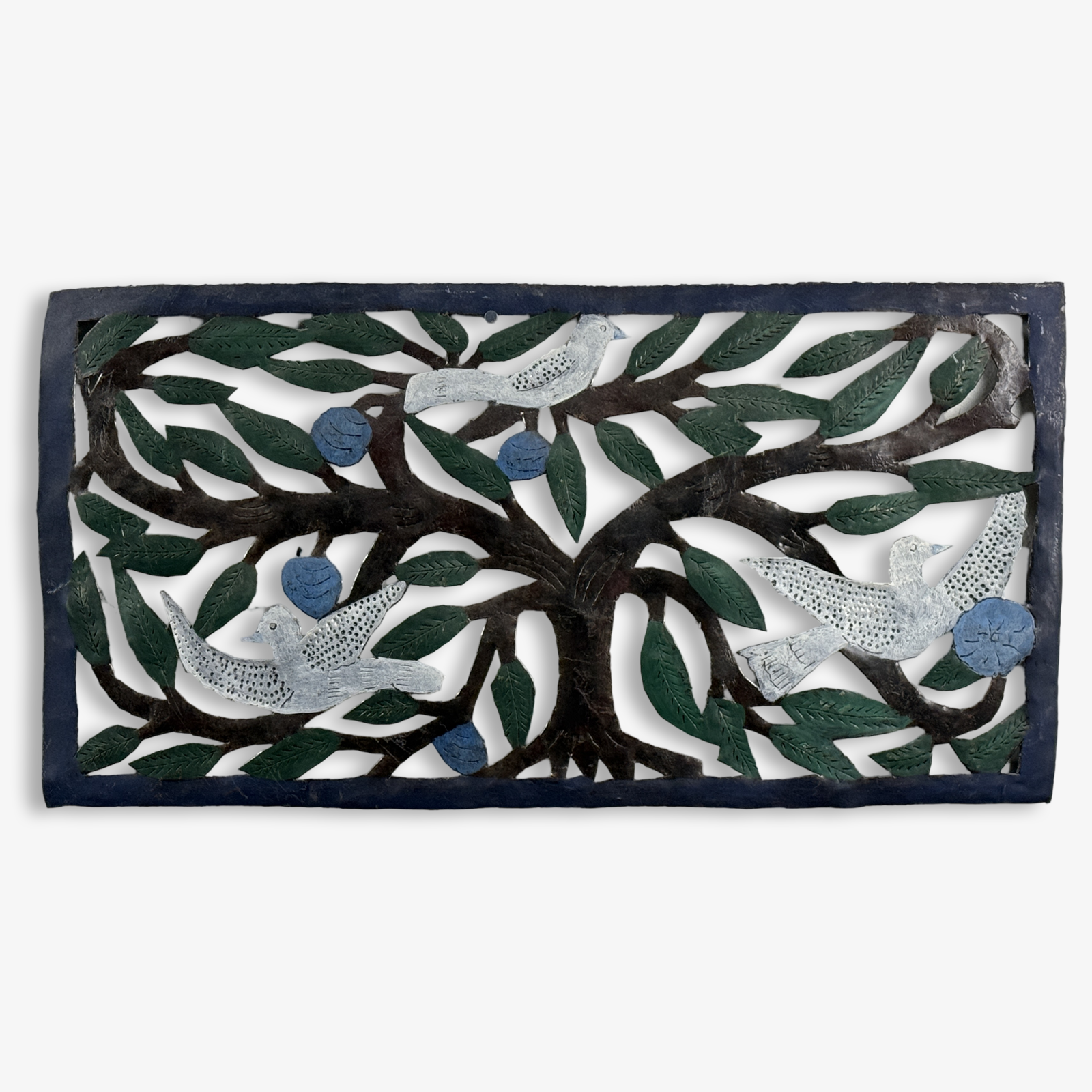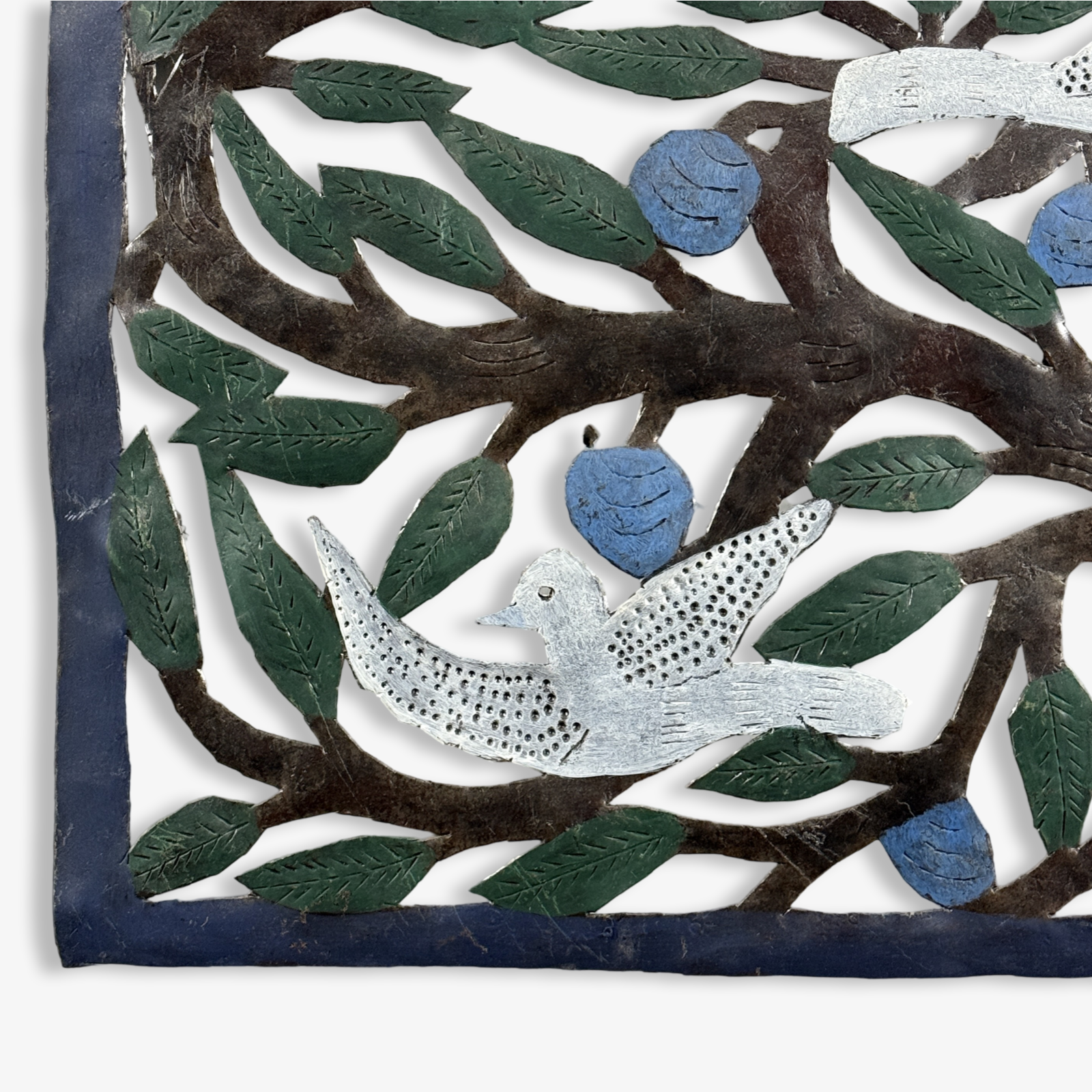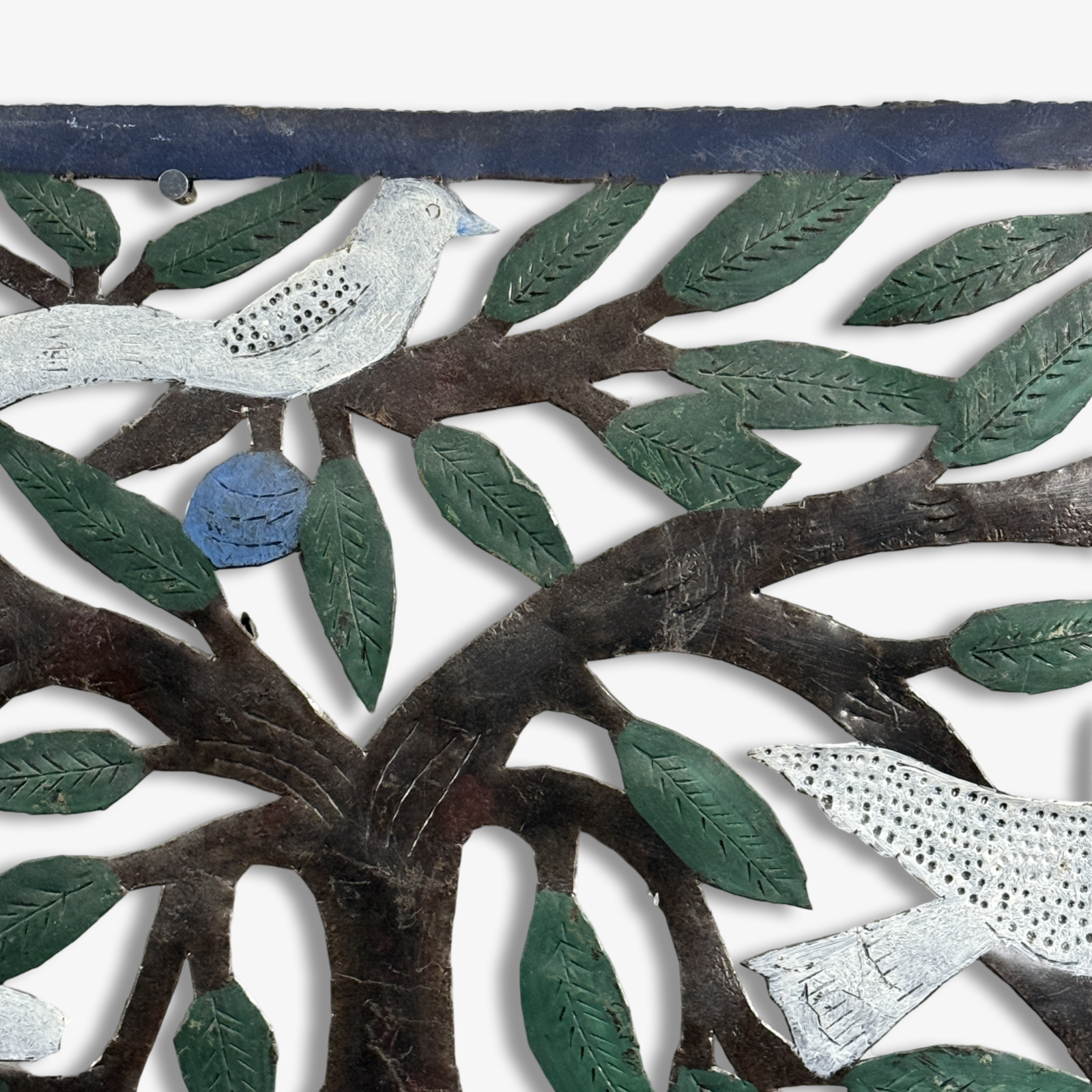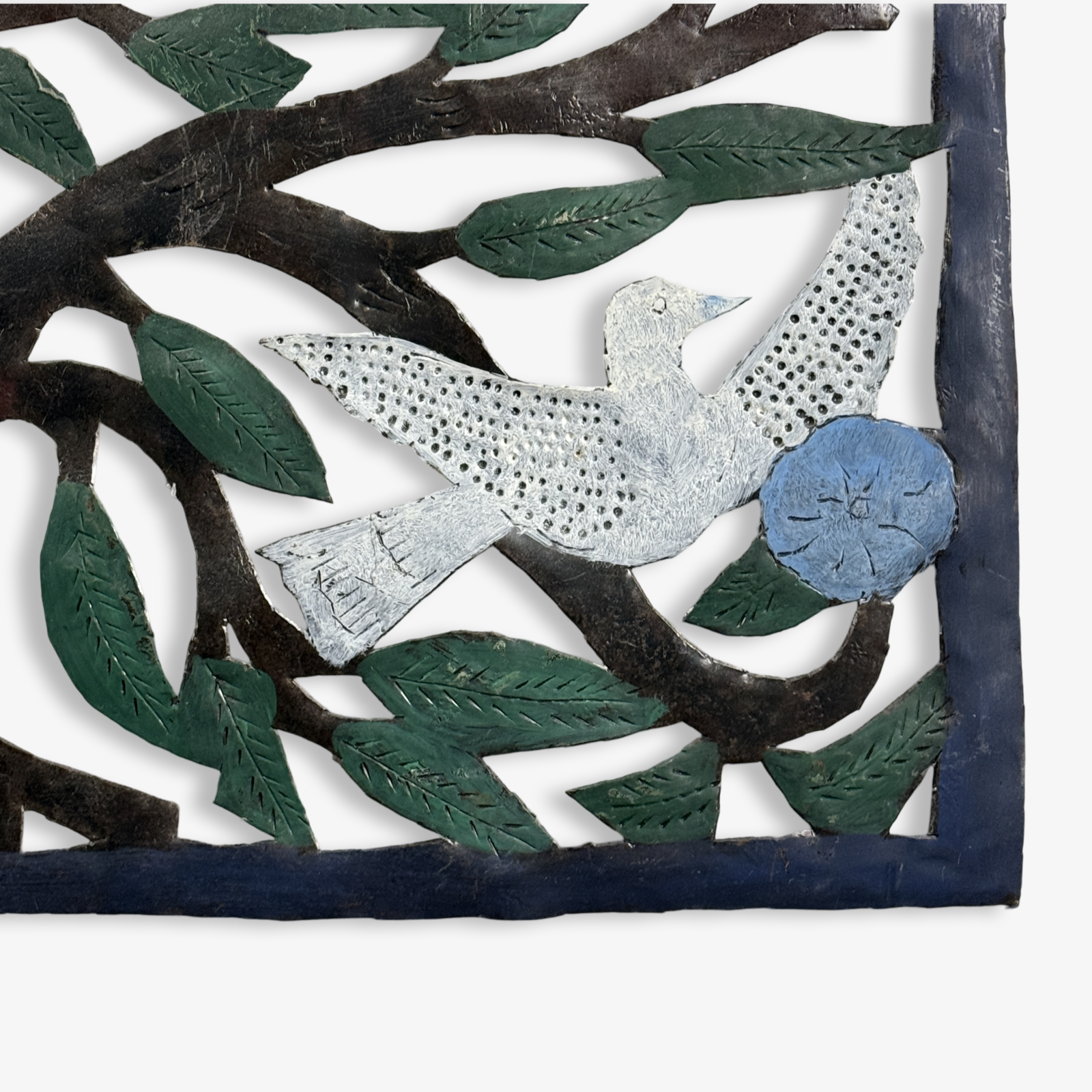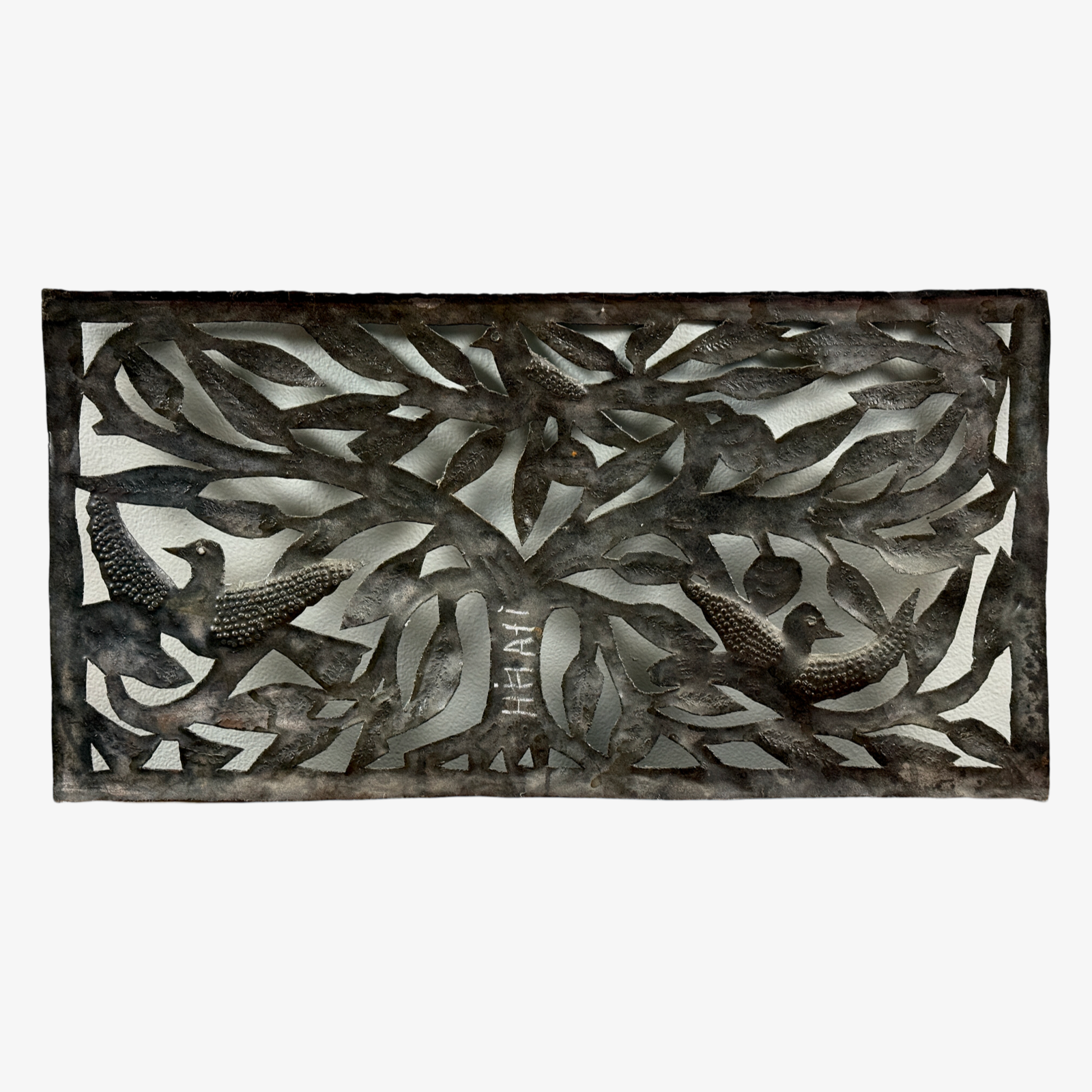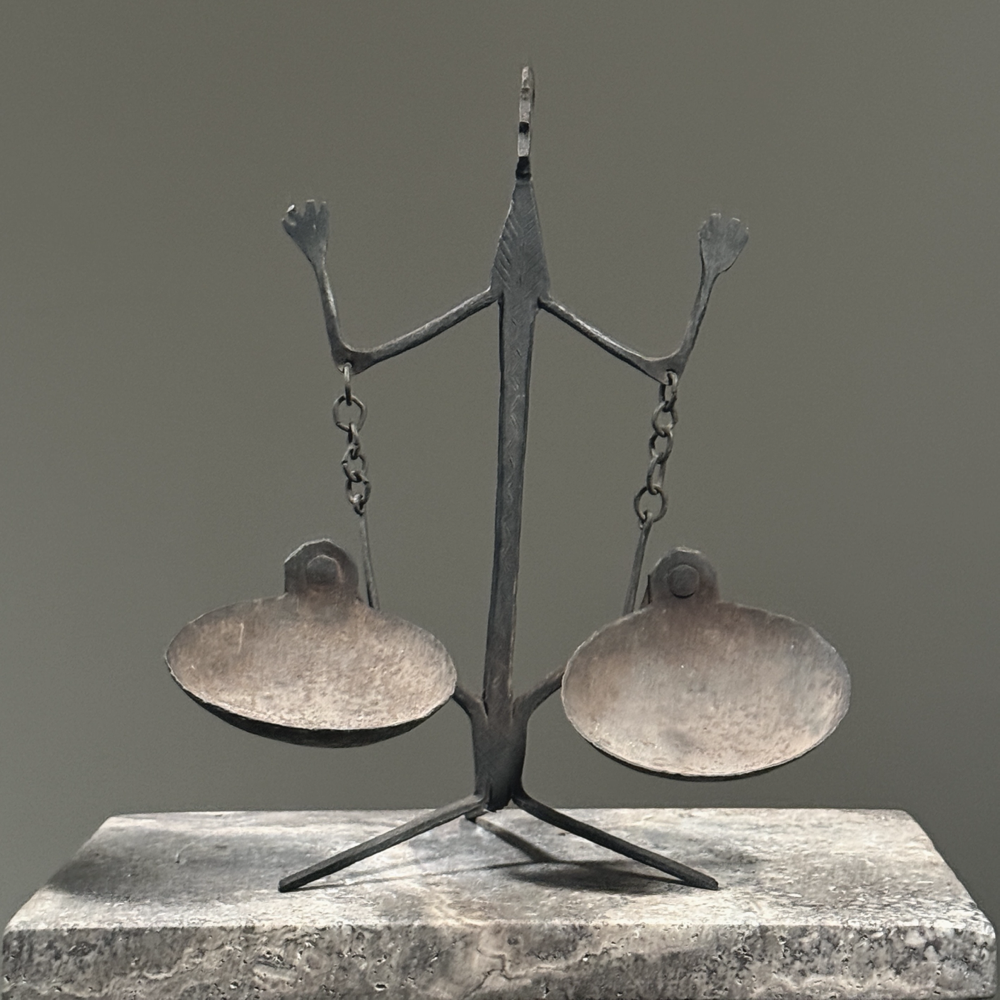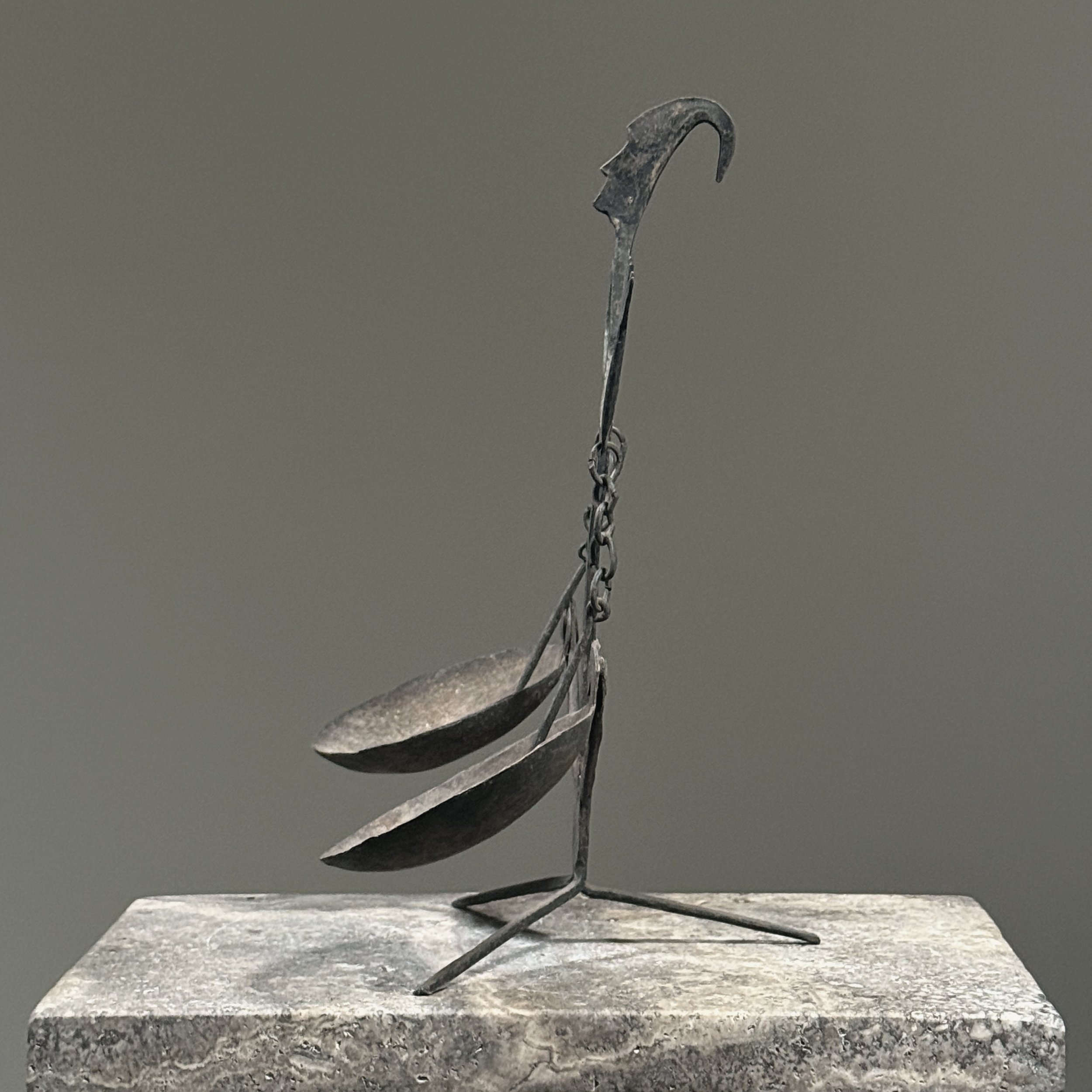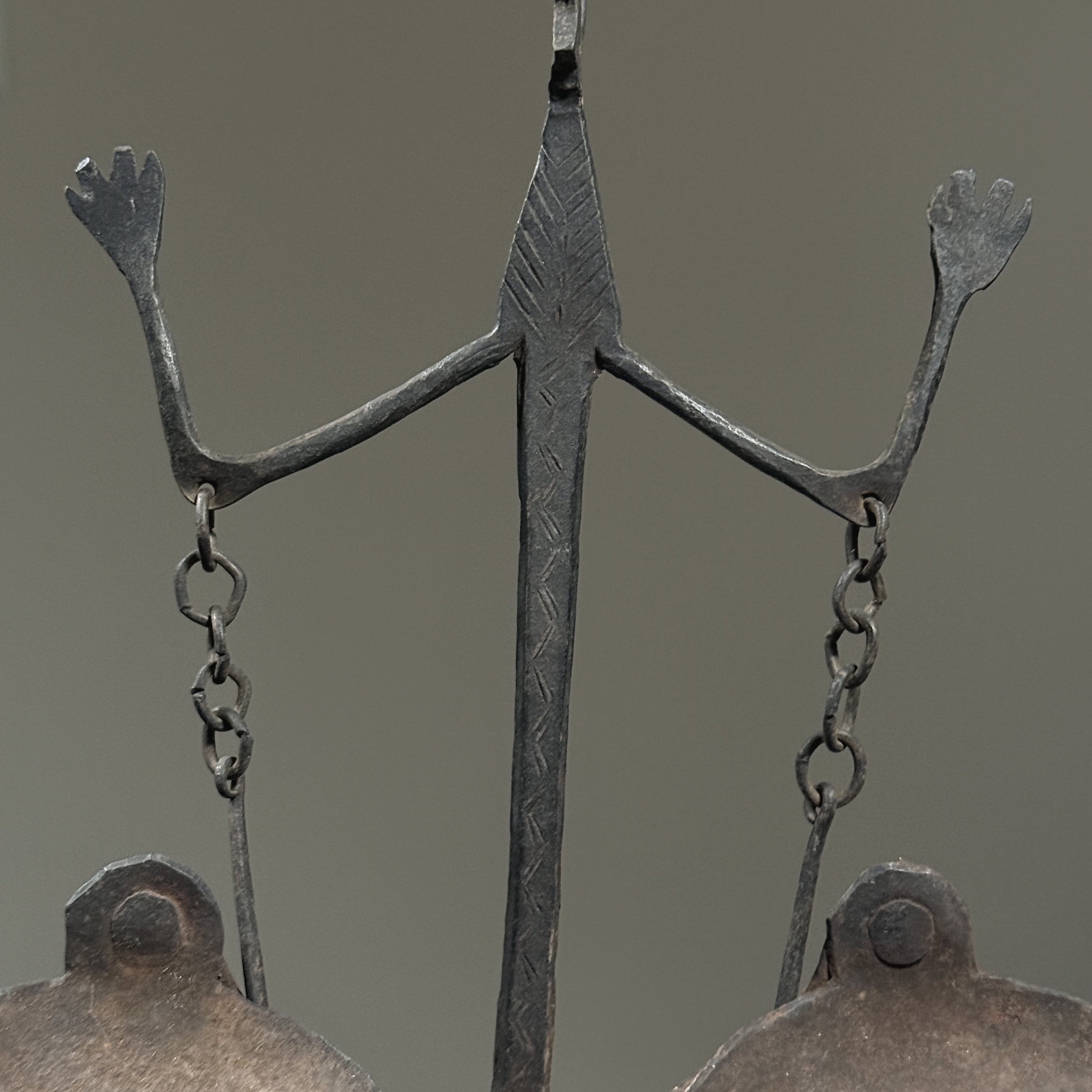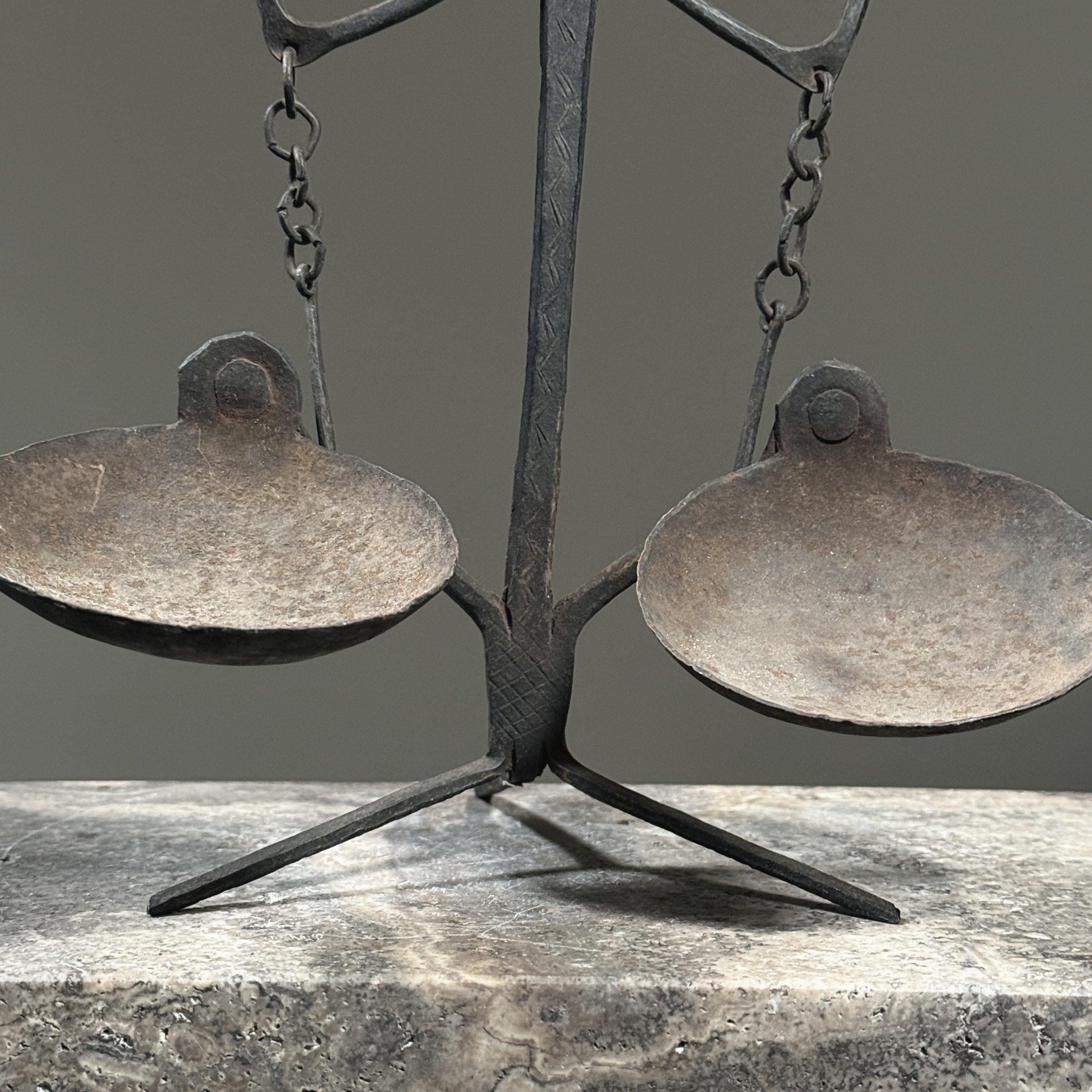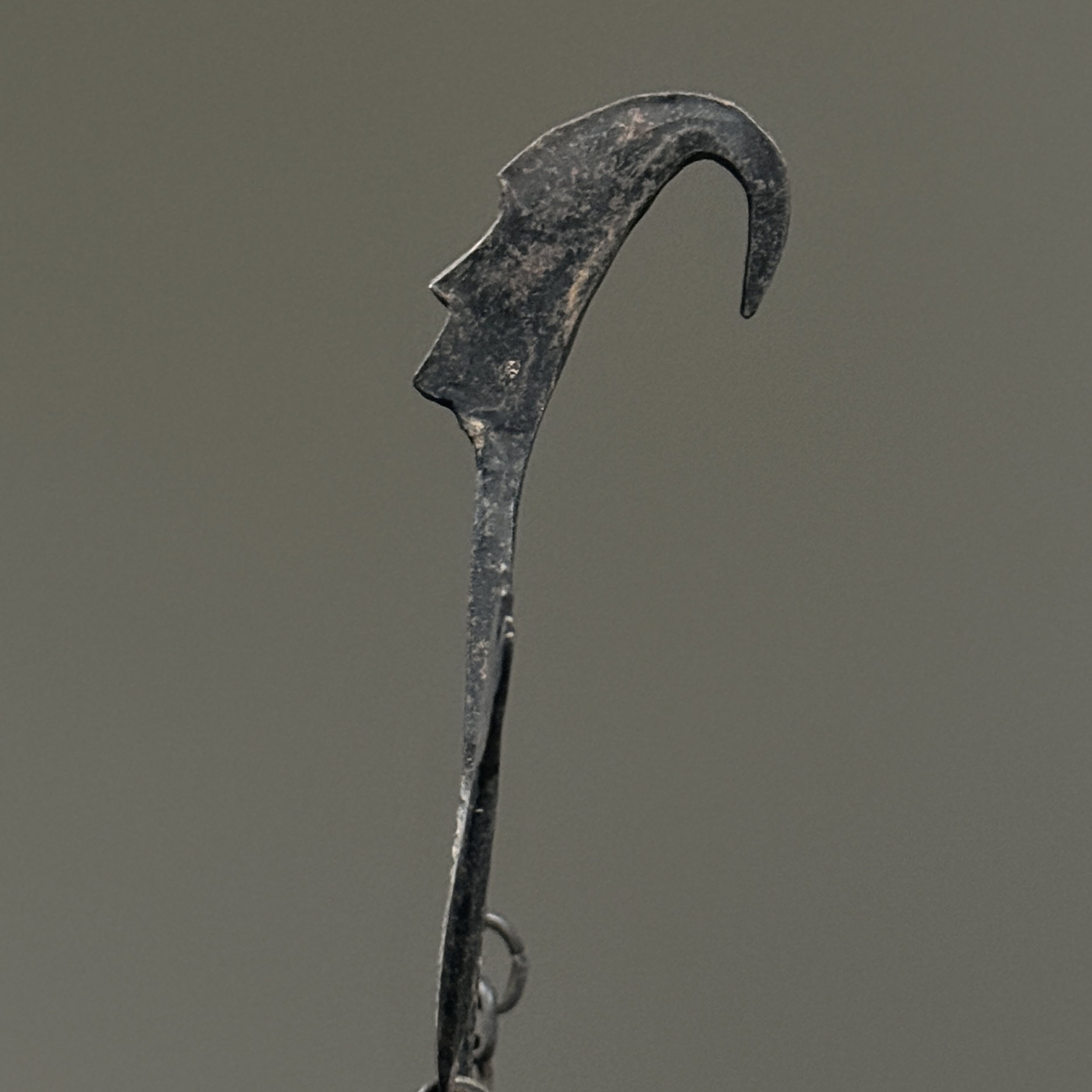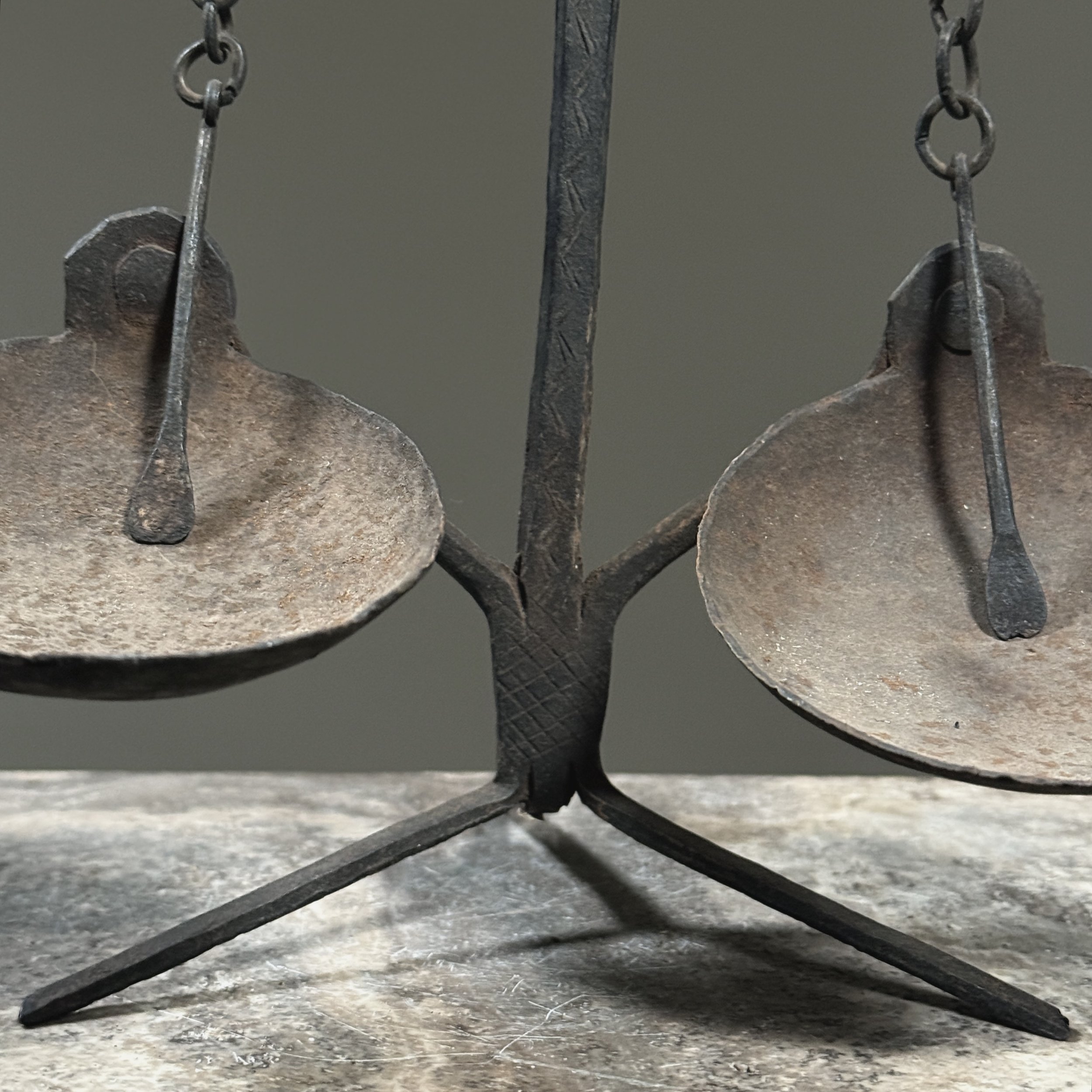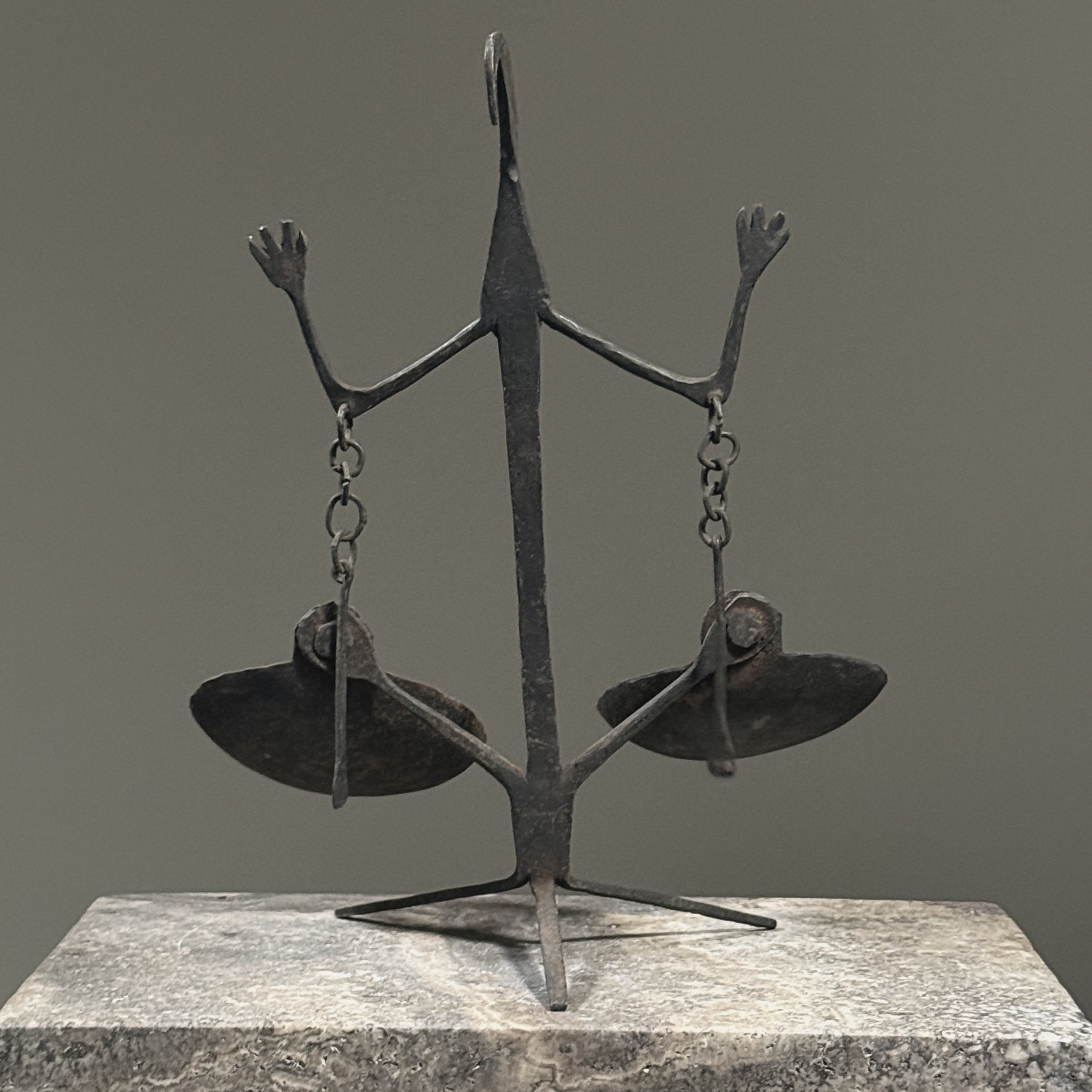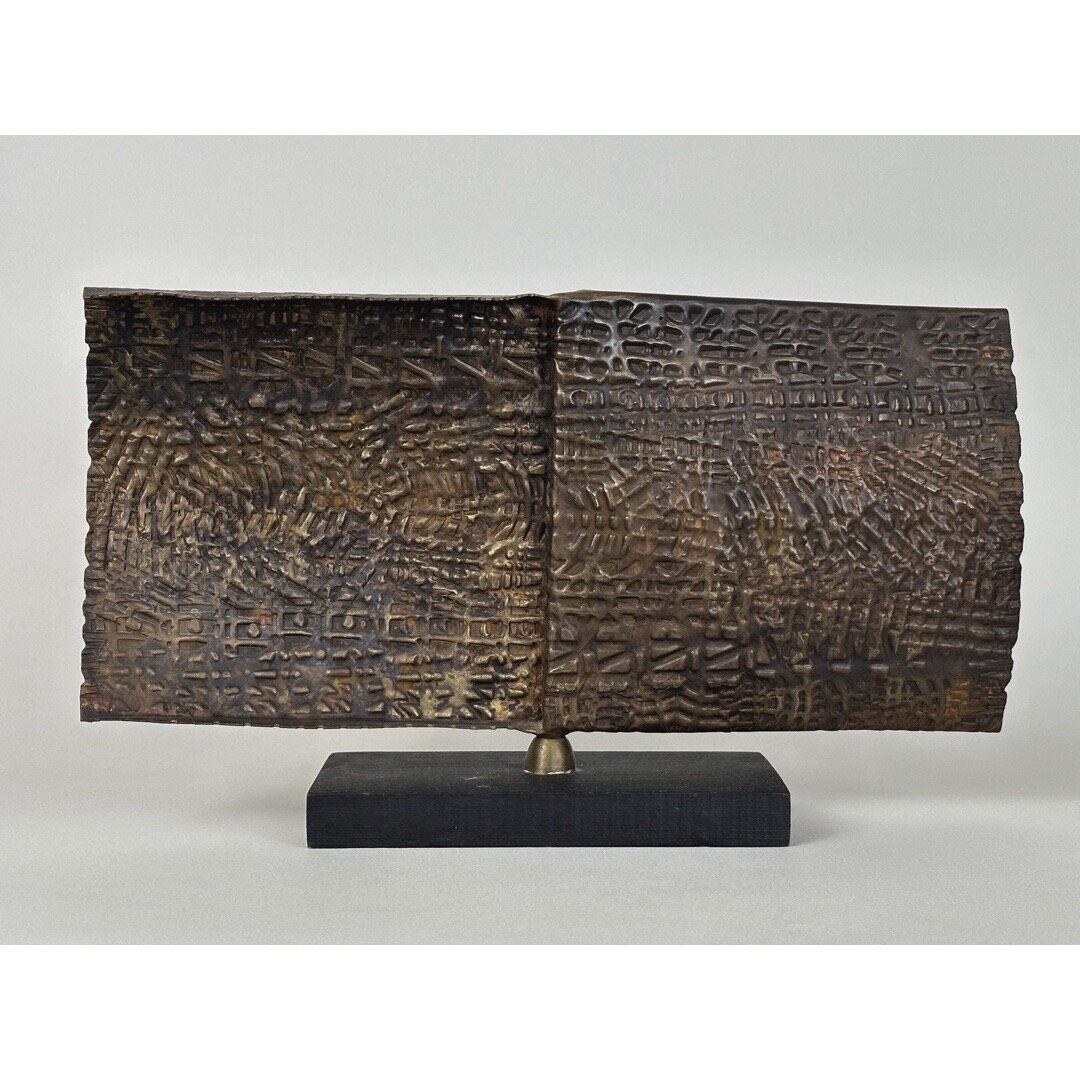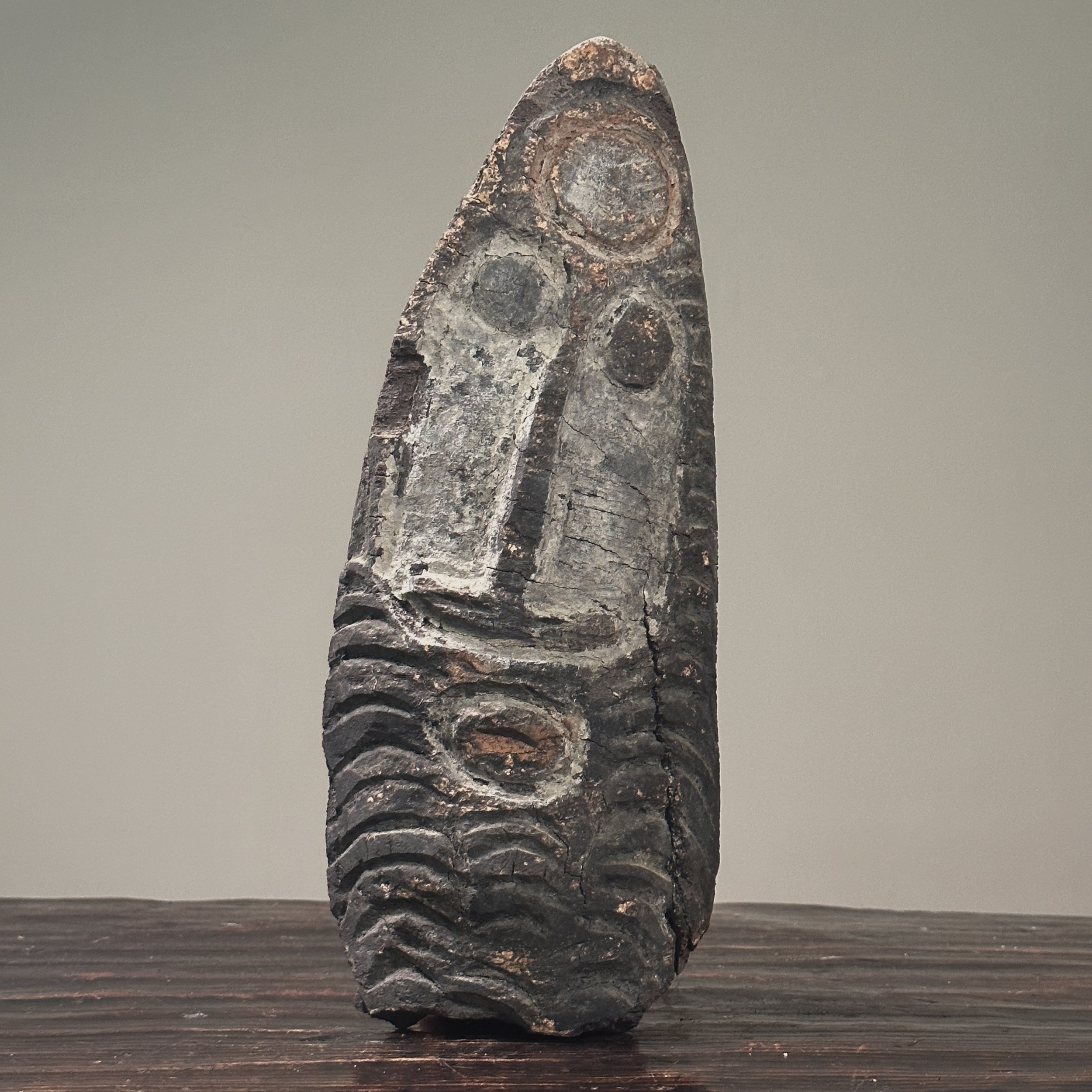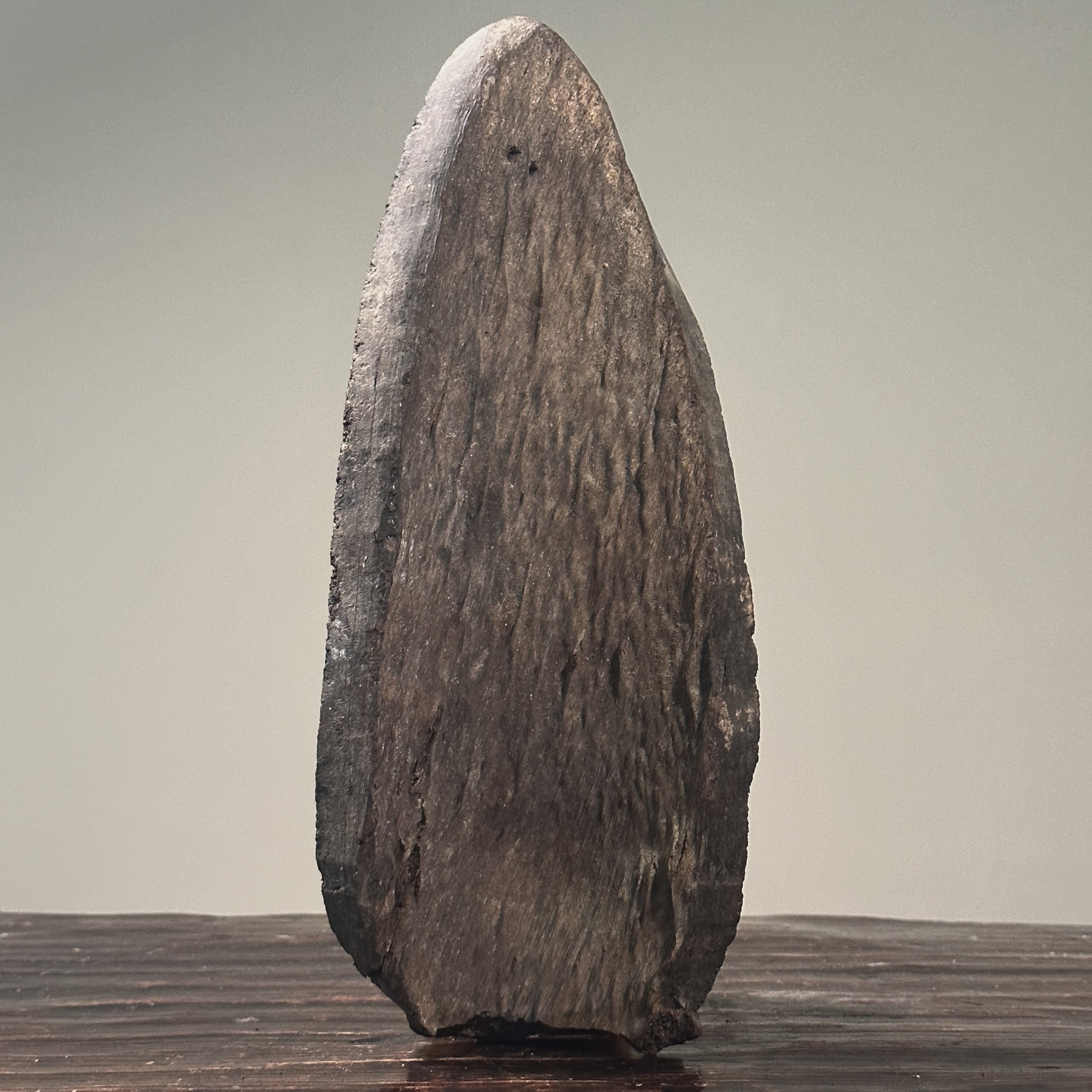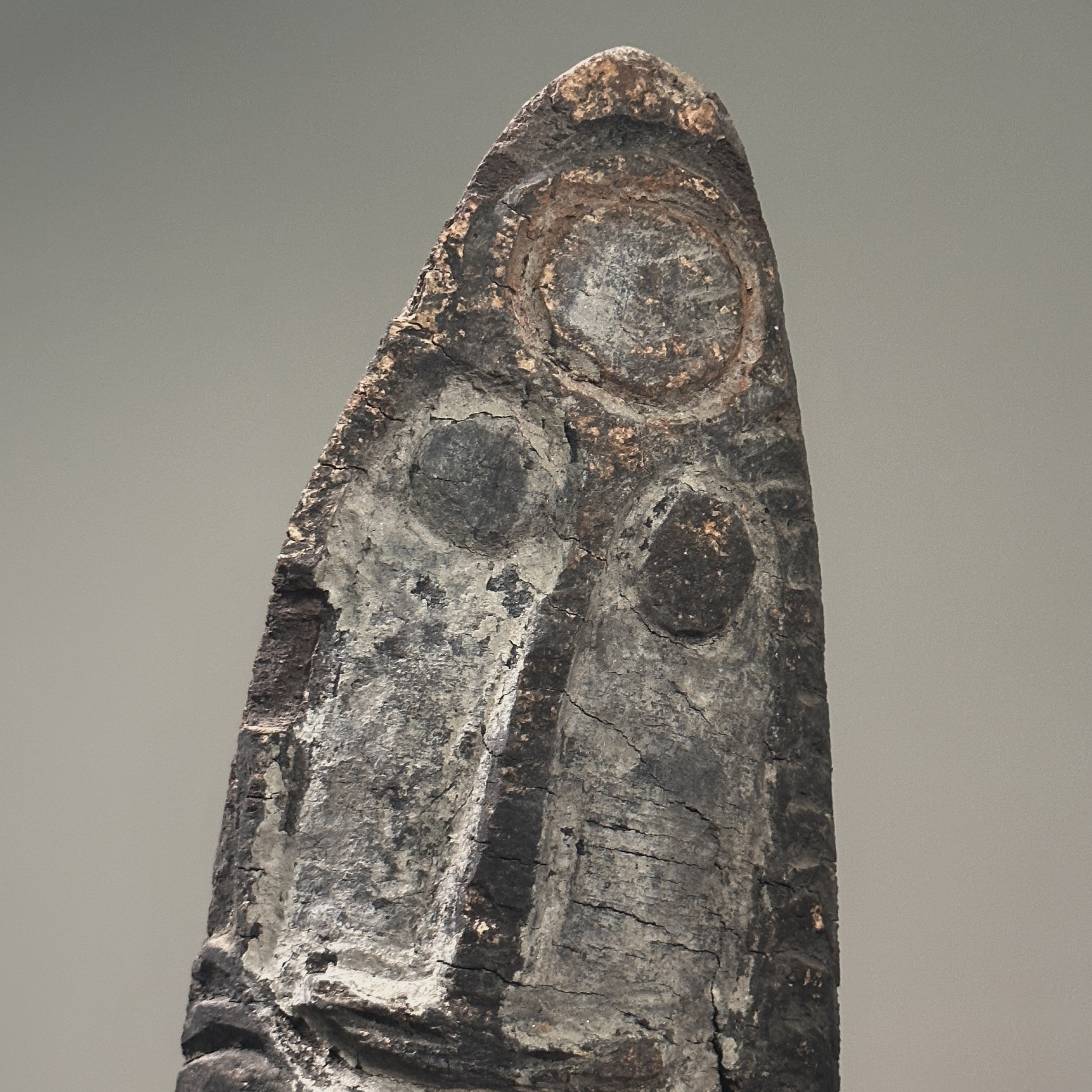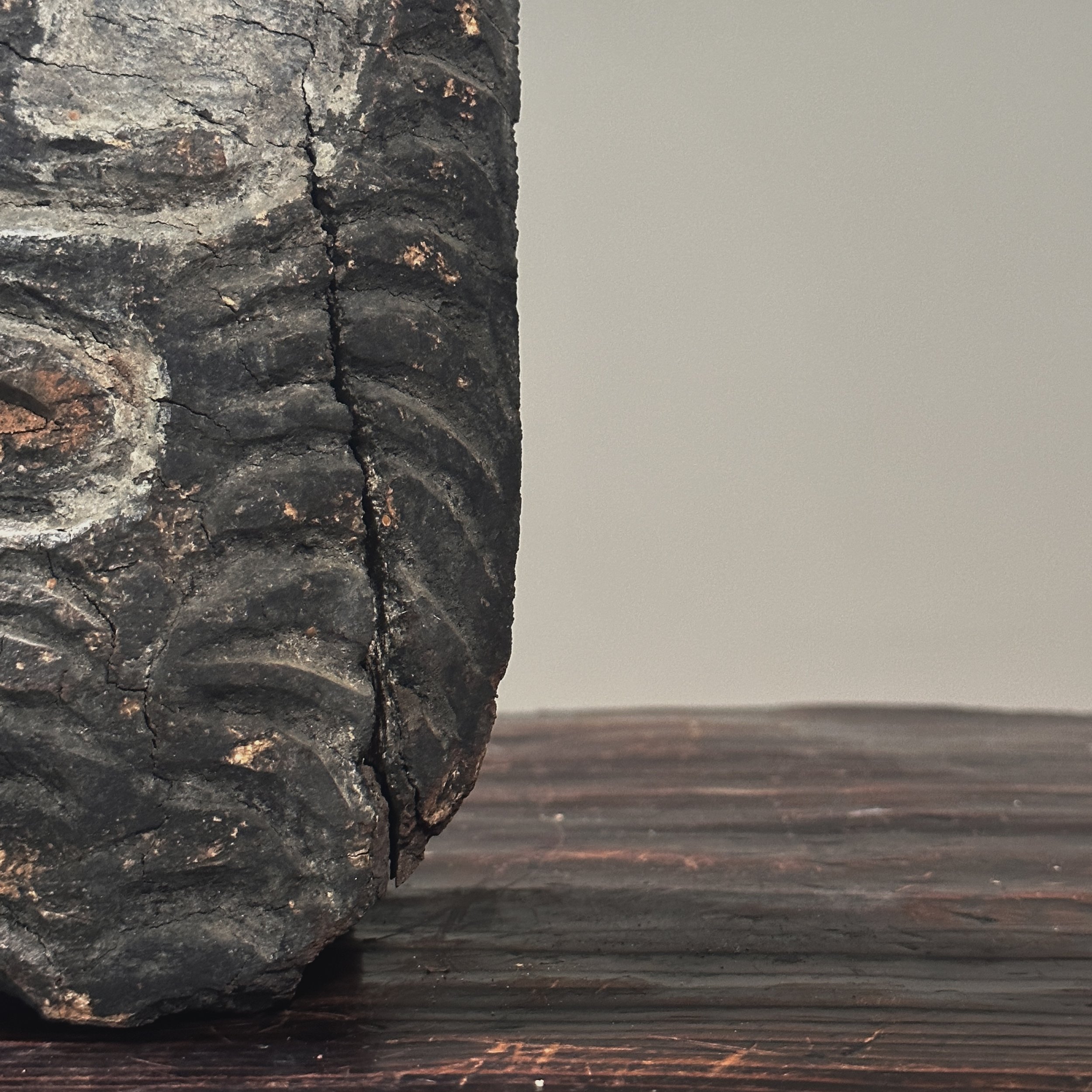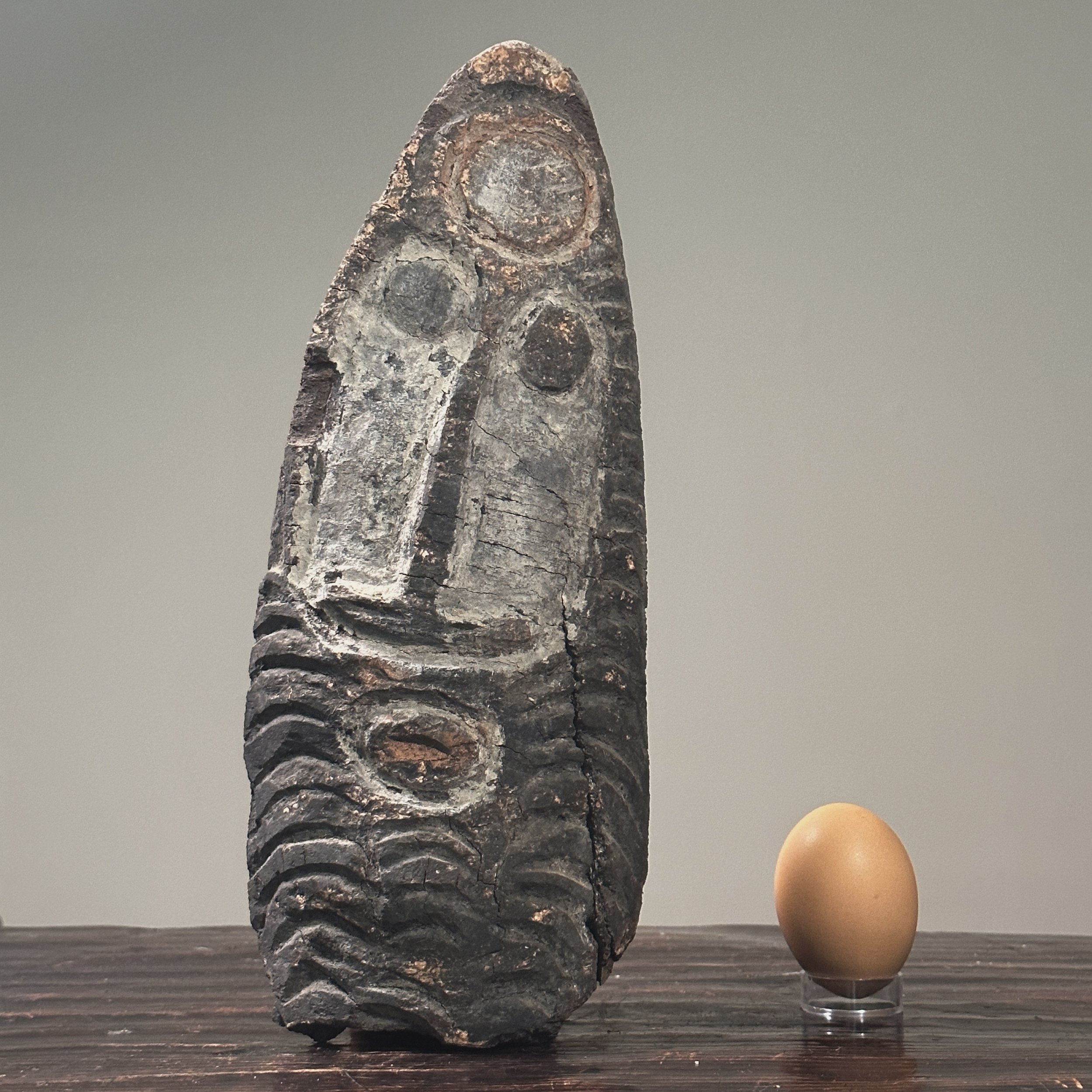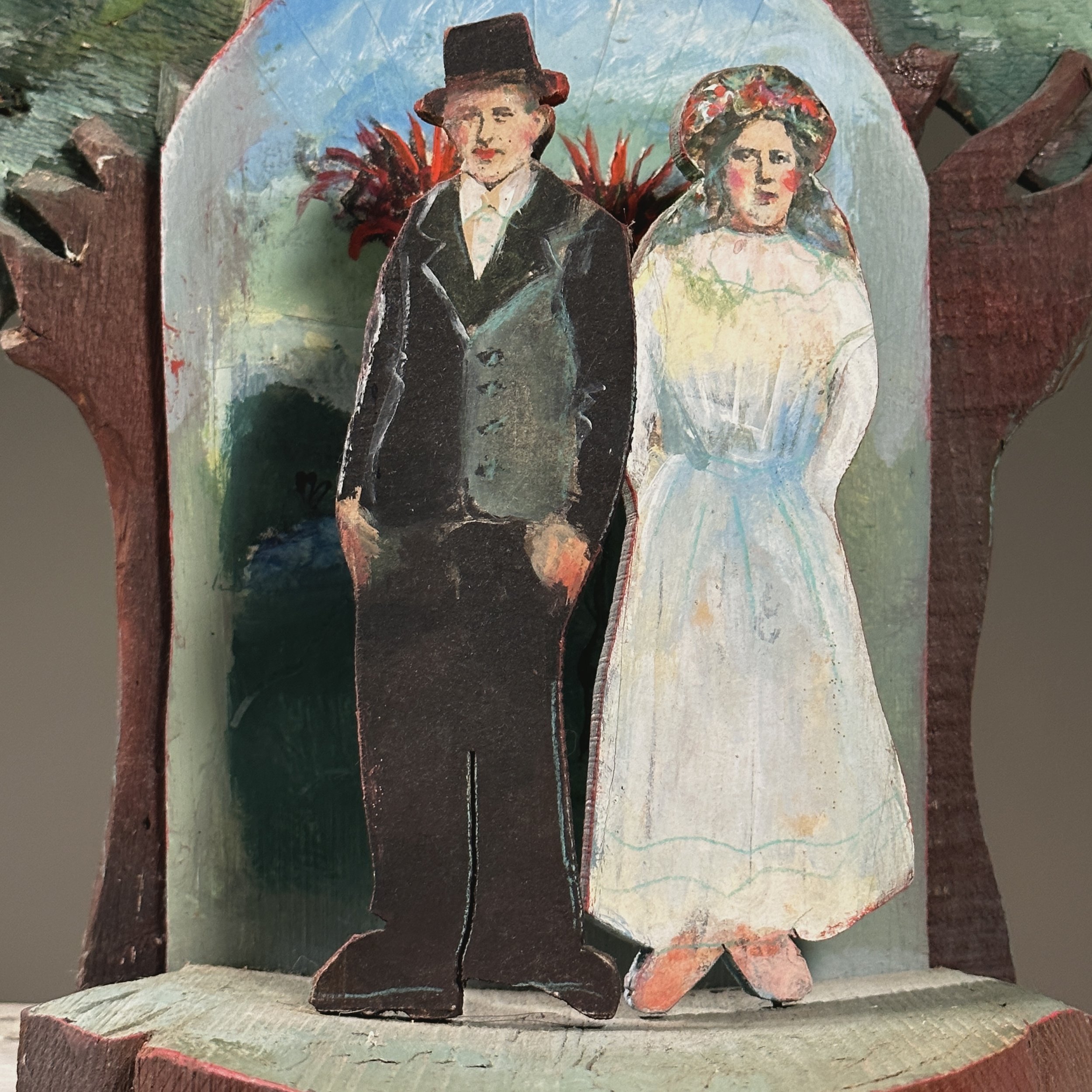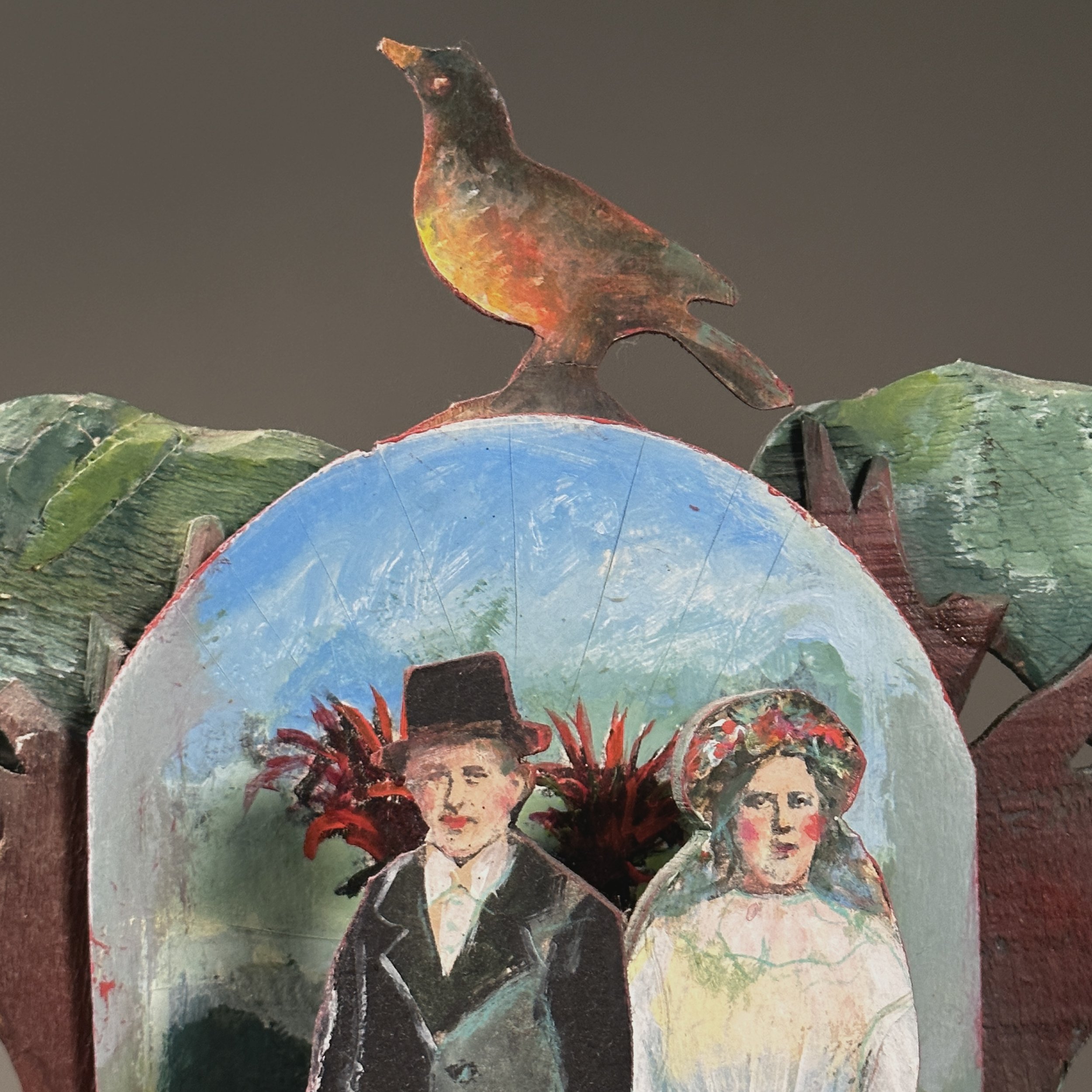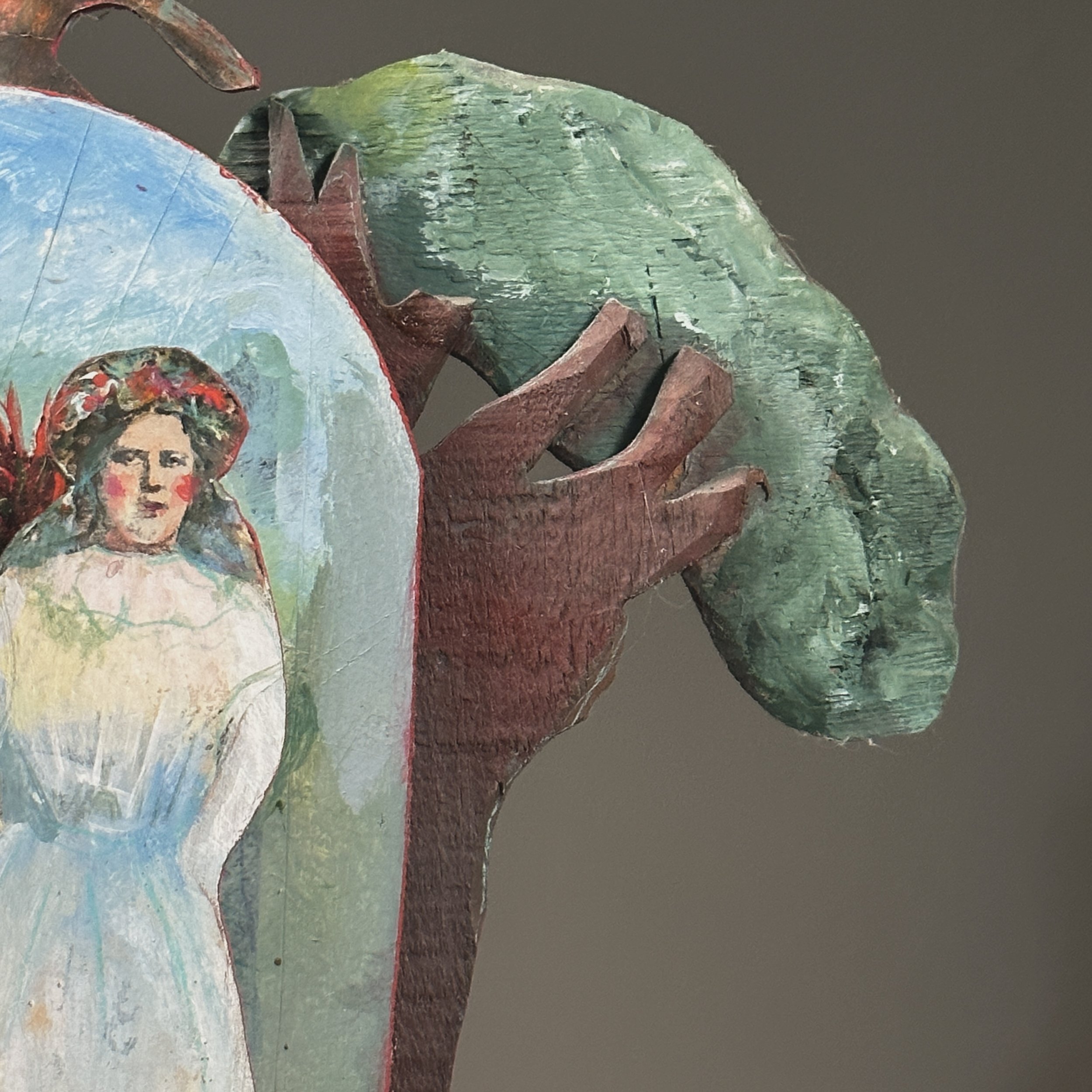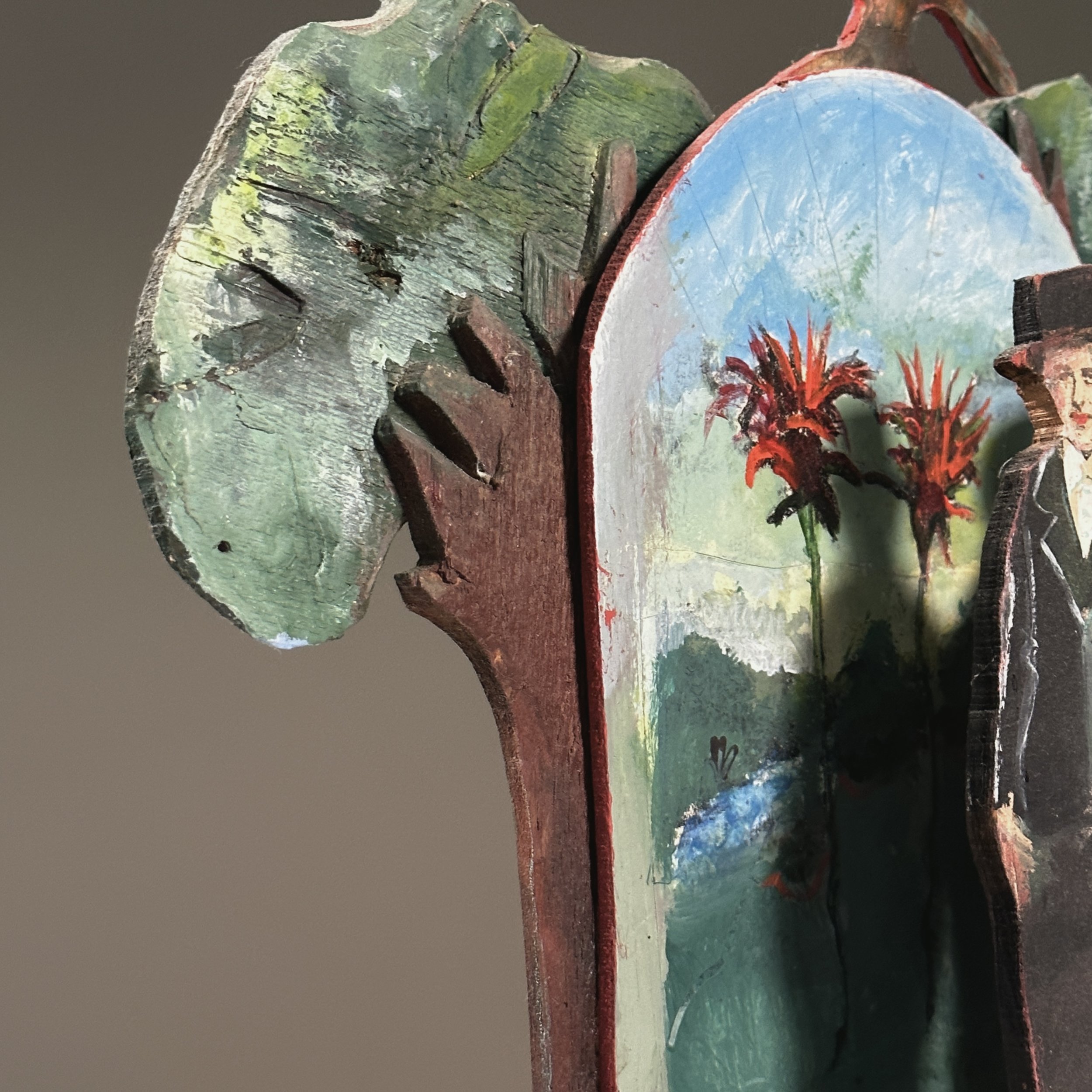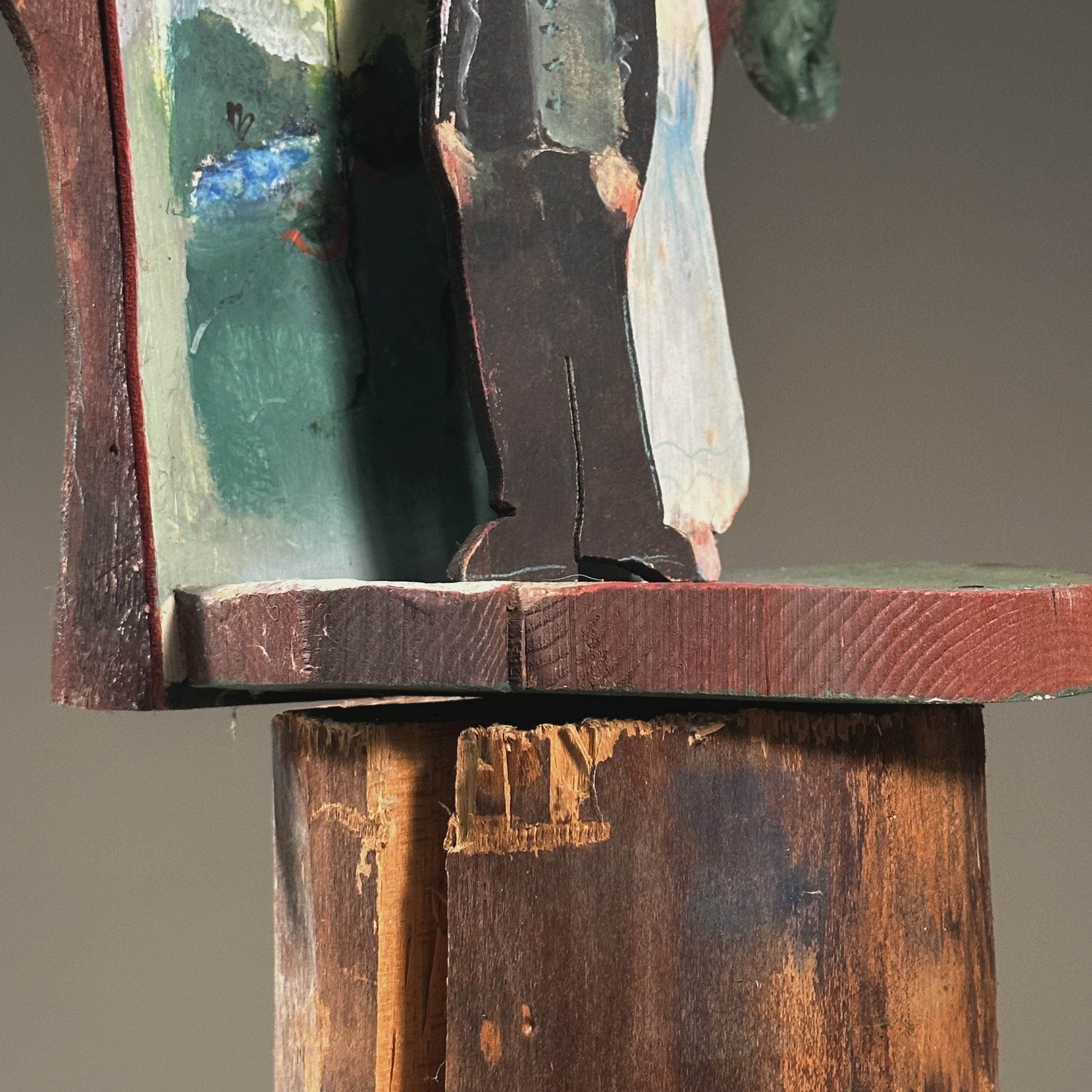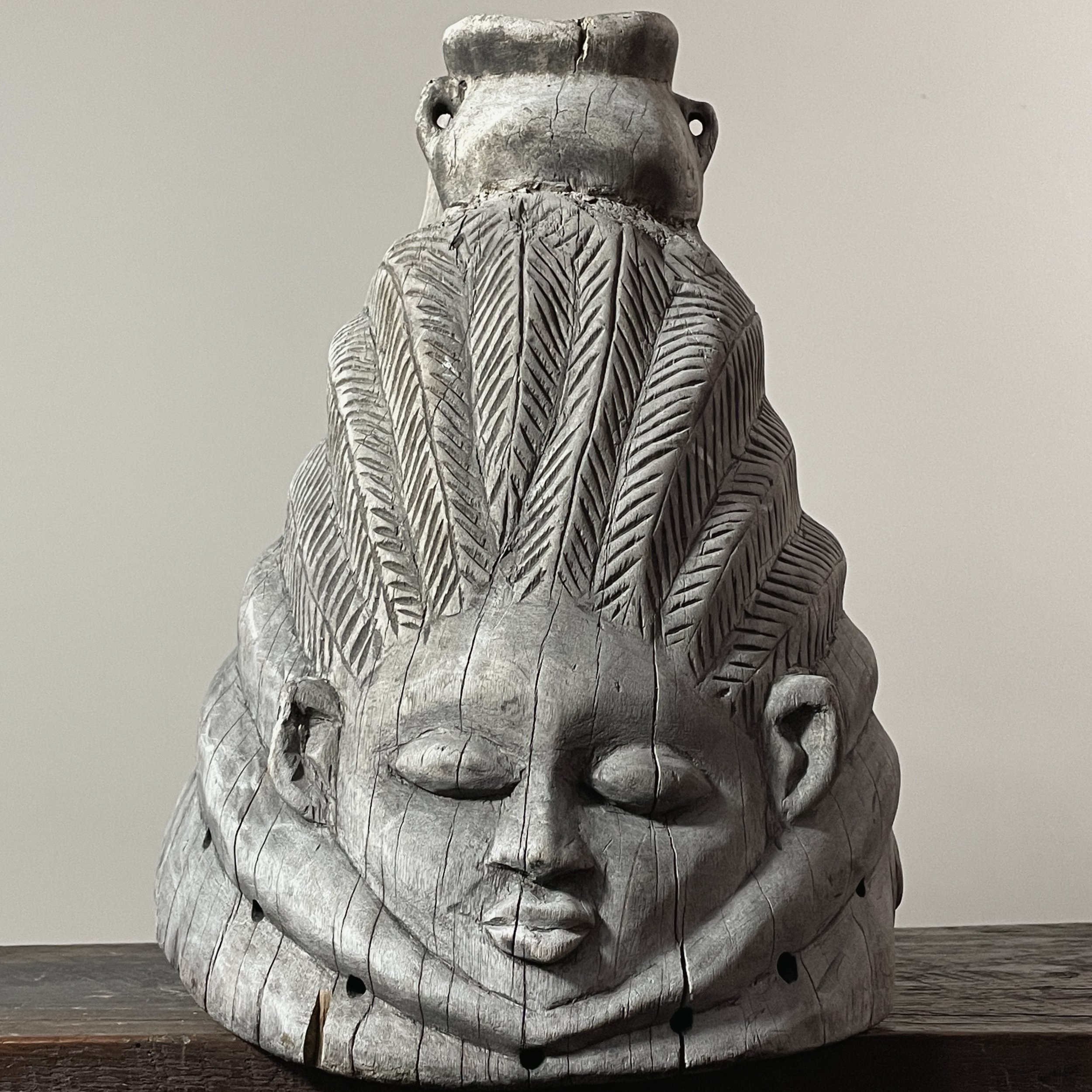 Image 1 of 13
Image 1 of 13

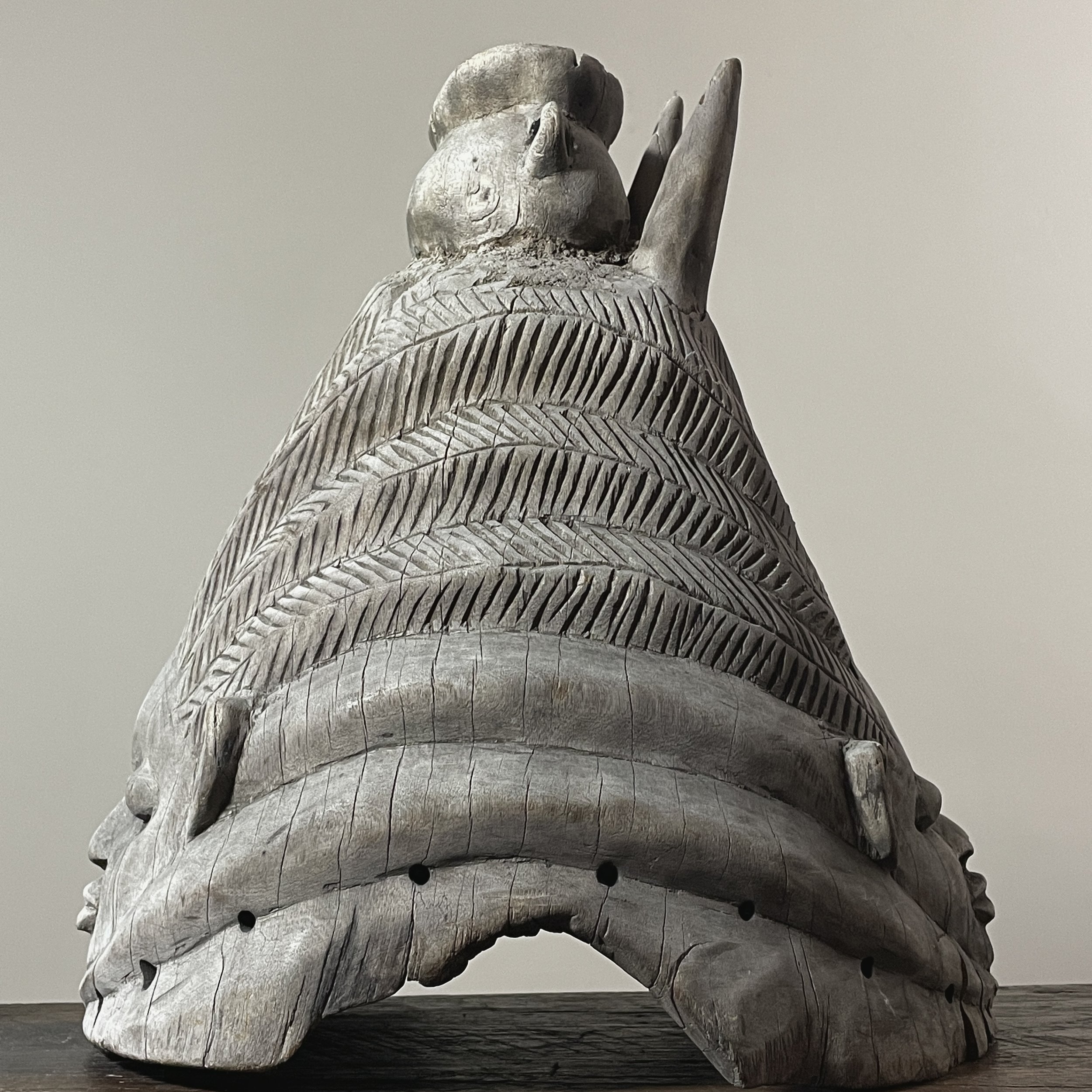 Image 2 of 13
Image 2 of 13

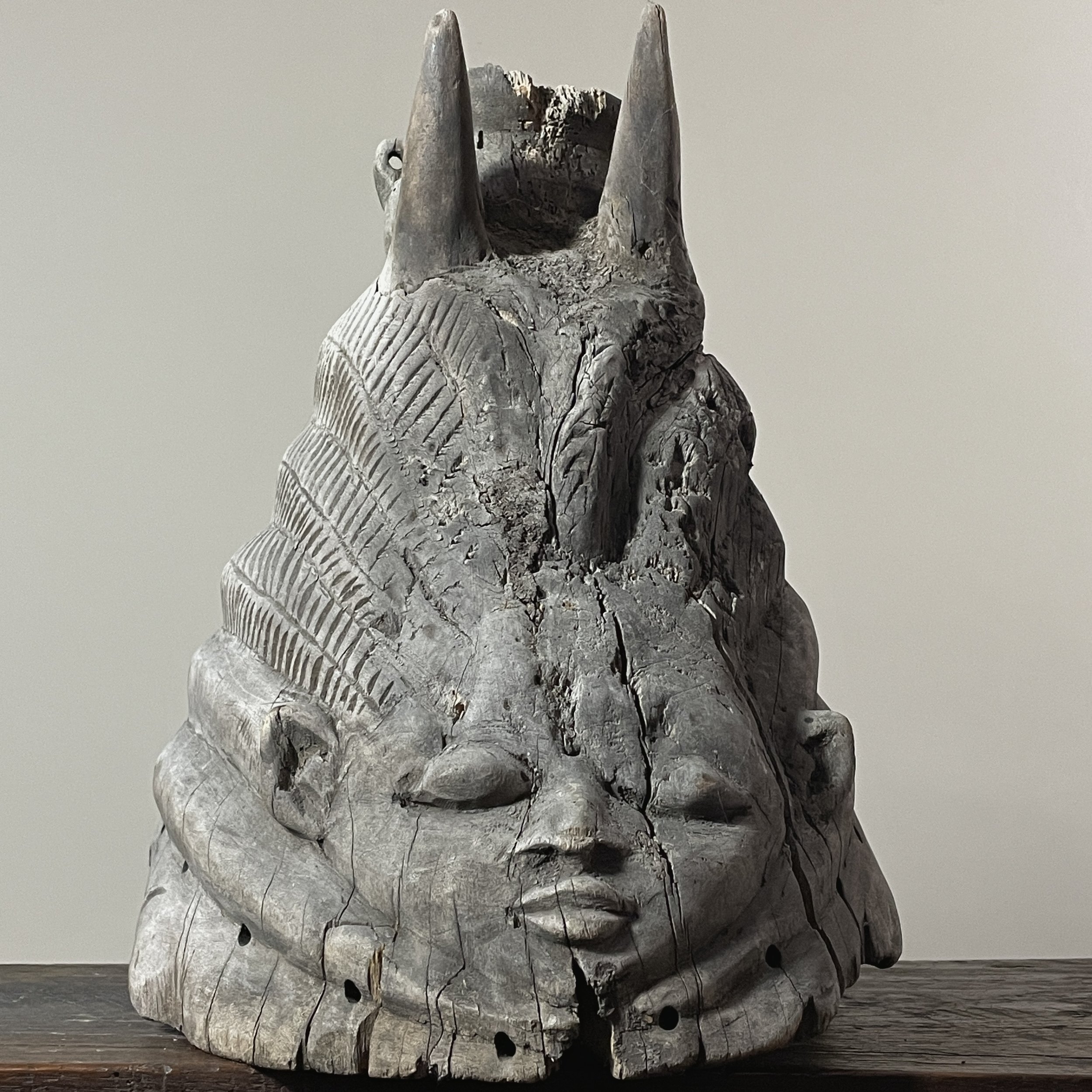 Image 3 of 13
Image 3 of 13

 Image 4 of 13
Image 4 of 13

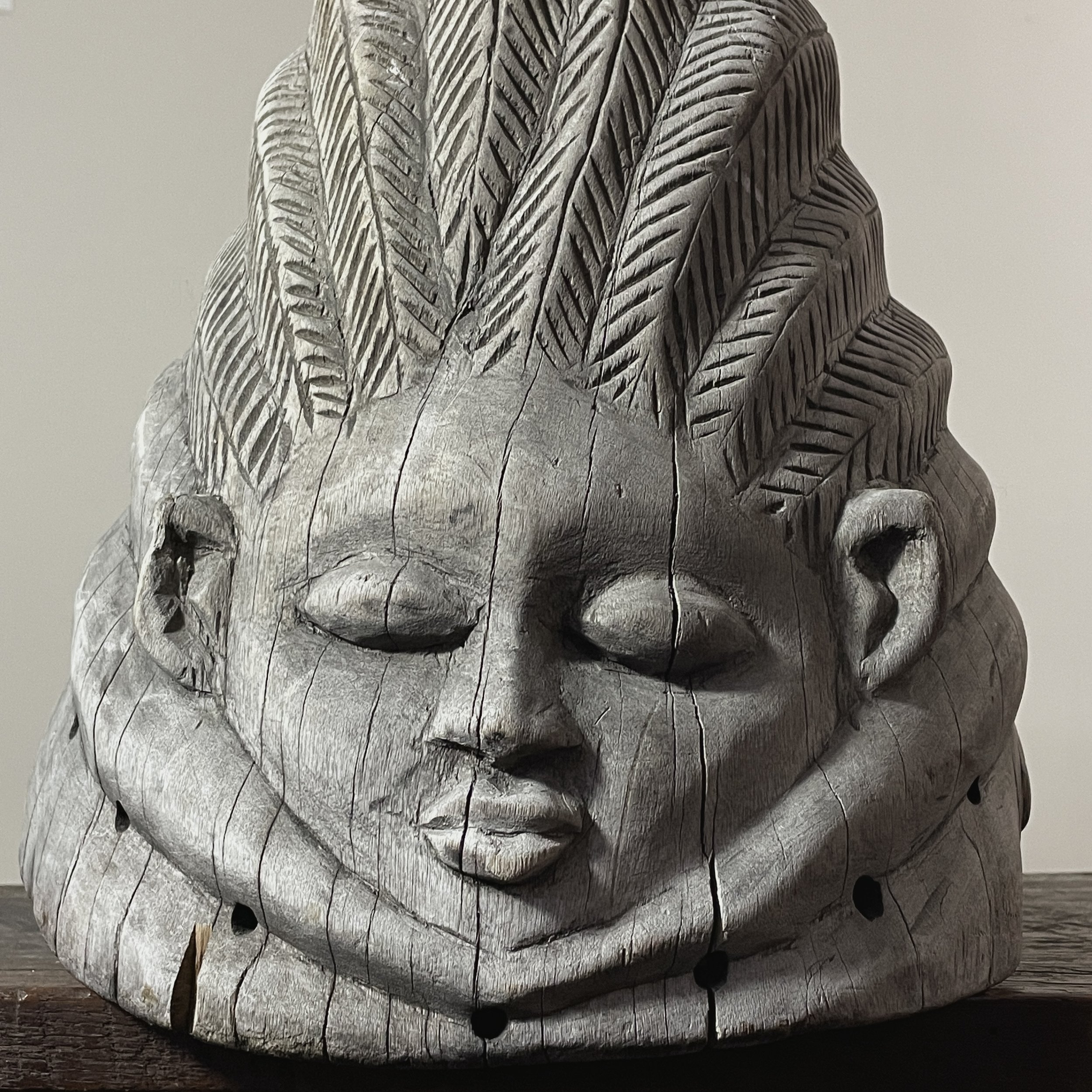 Image 5 of 13
Image 5 of 13

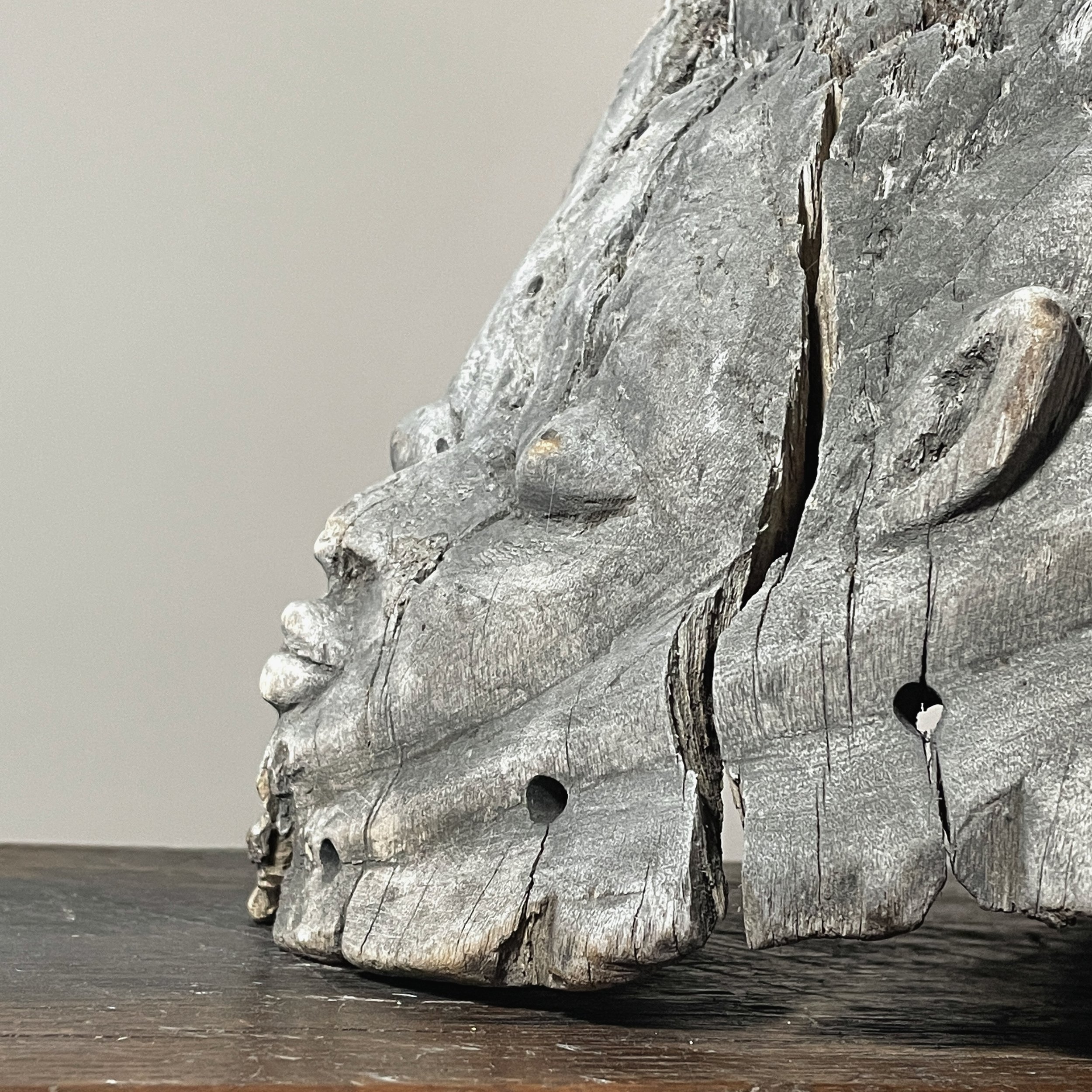 Image 6 of 13
Image 6 of 13

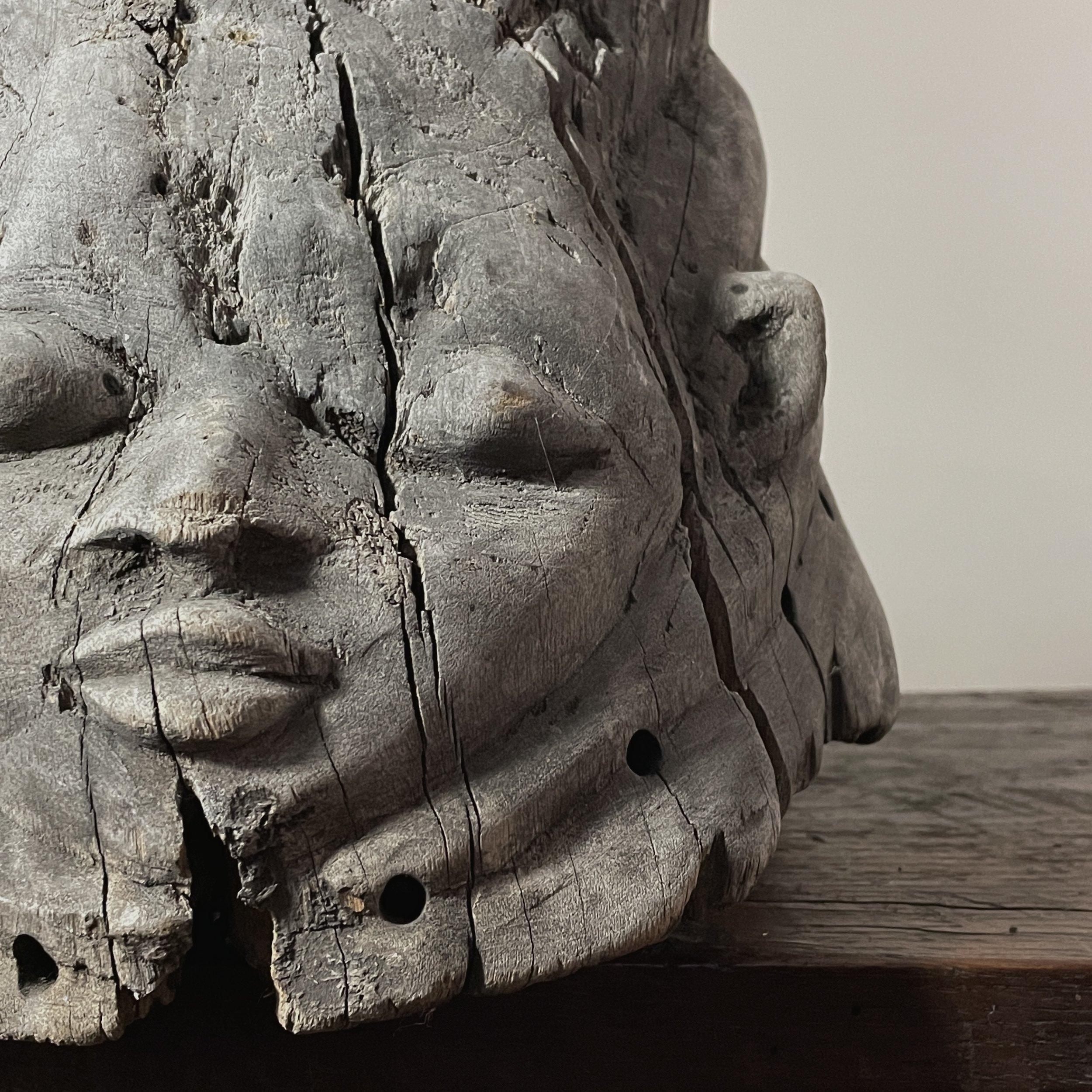 Image 7 of 13
Image 7 of 13

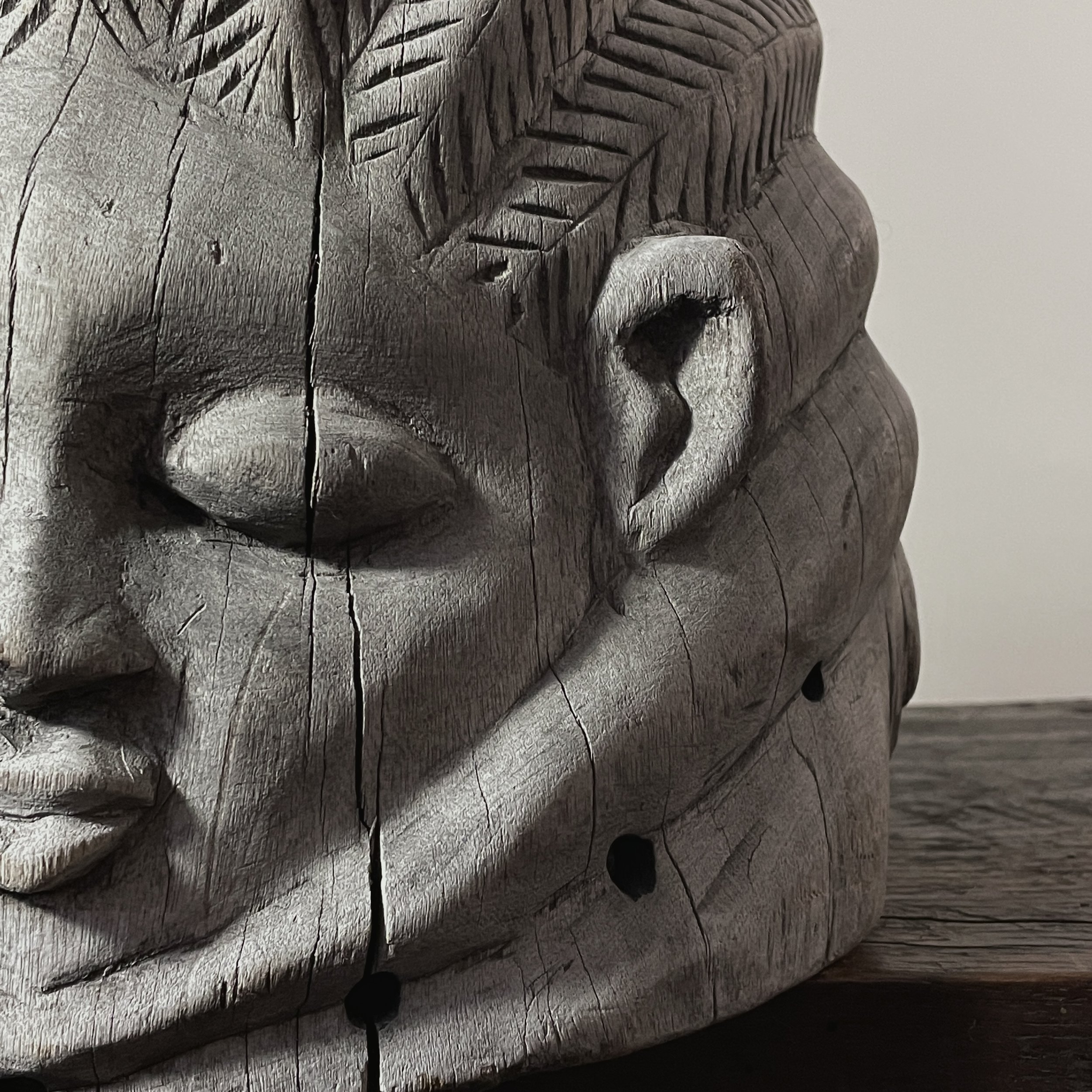 Image 8 of 13
Image 8 of 13

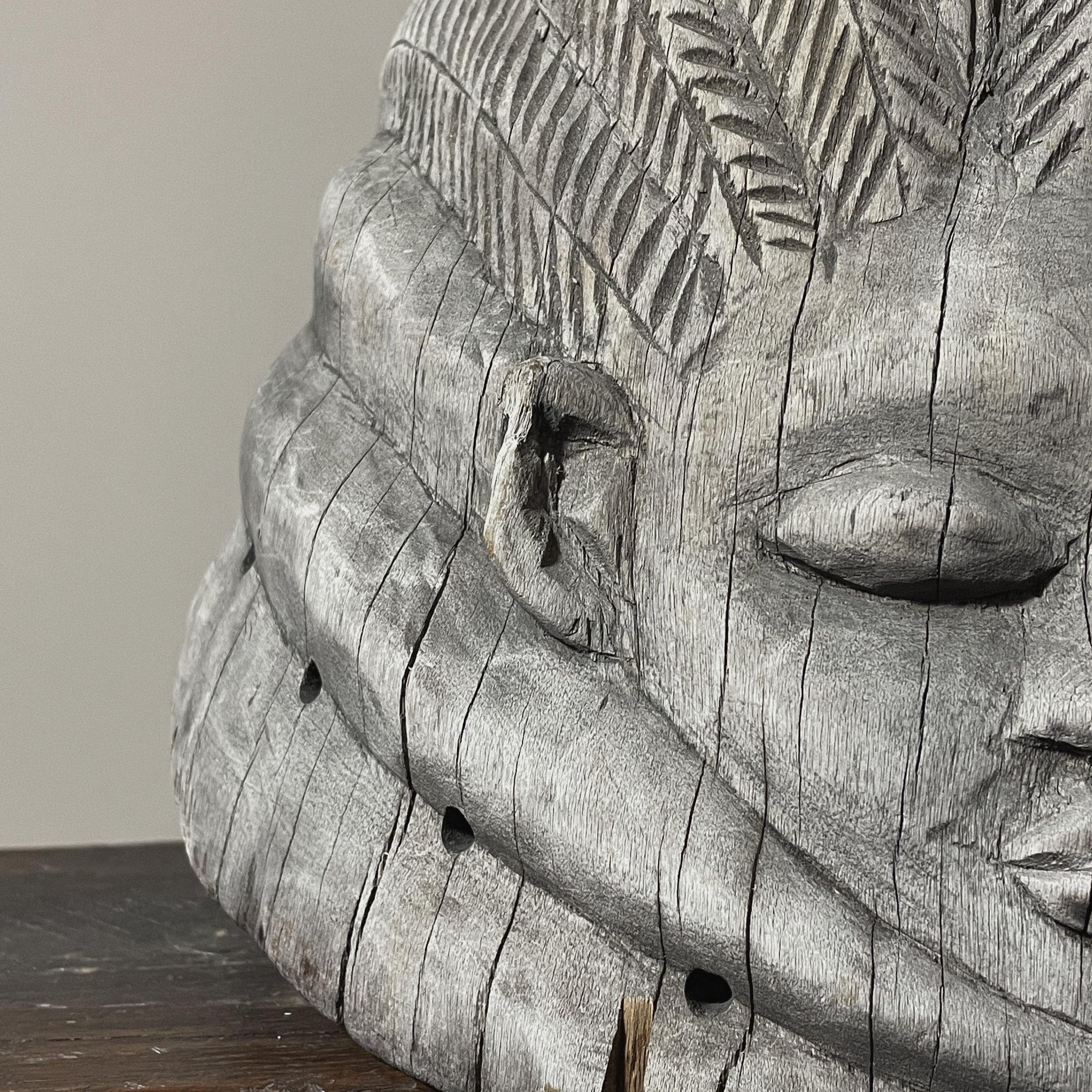 Image 9 of 13
Image 9 of 13

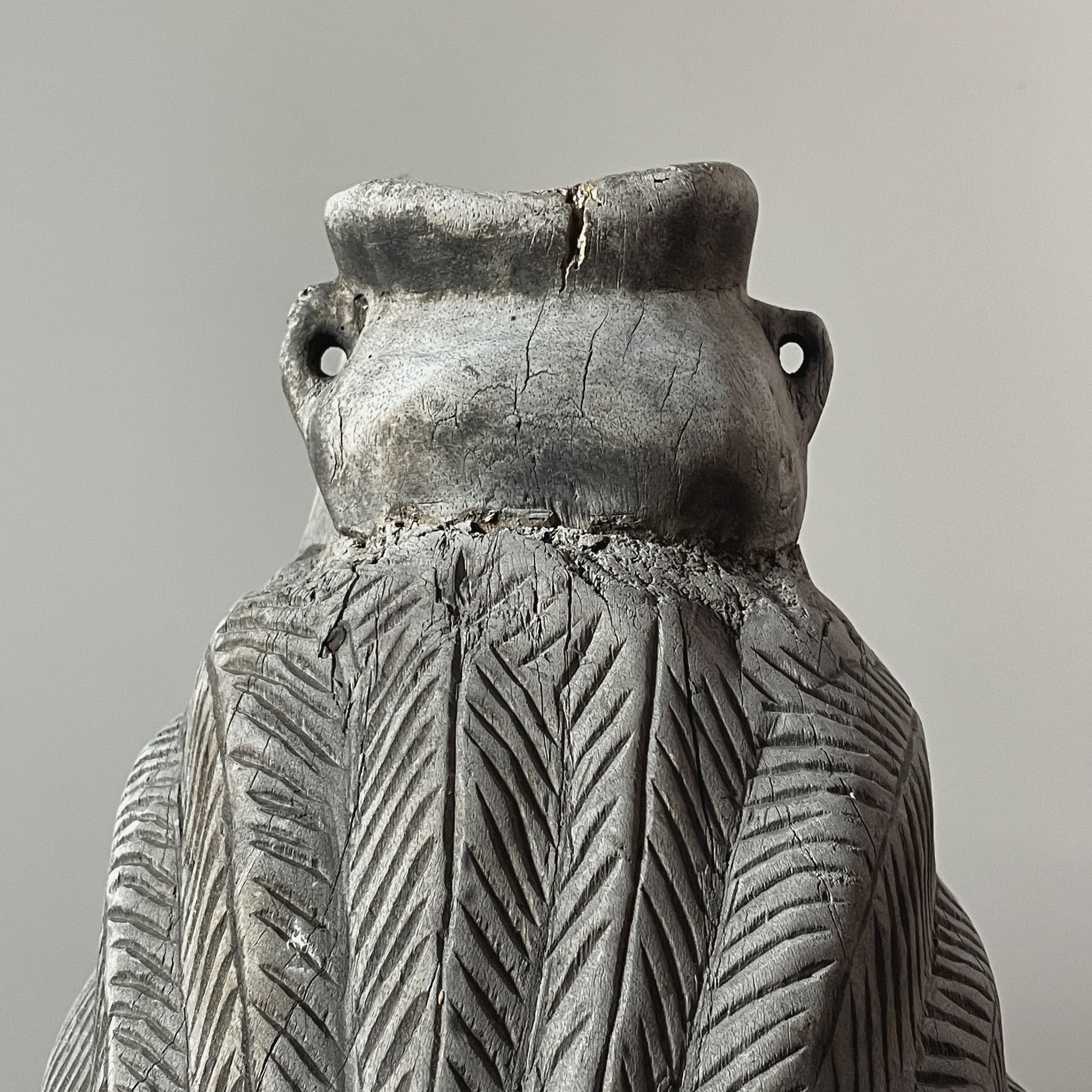 Image 10 of 13
Image 10 of 13

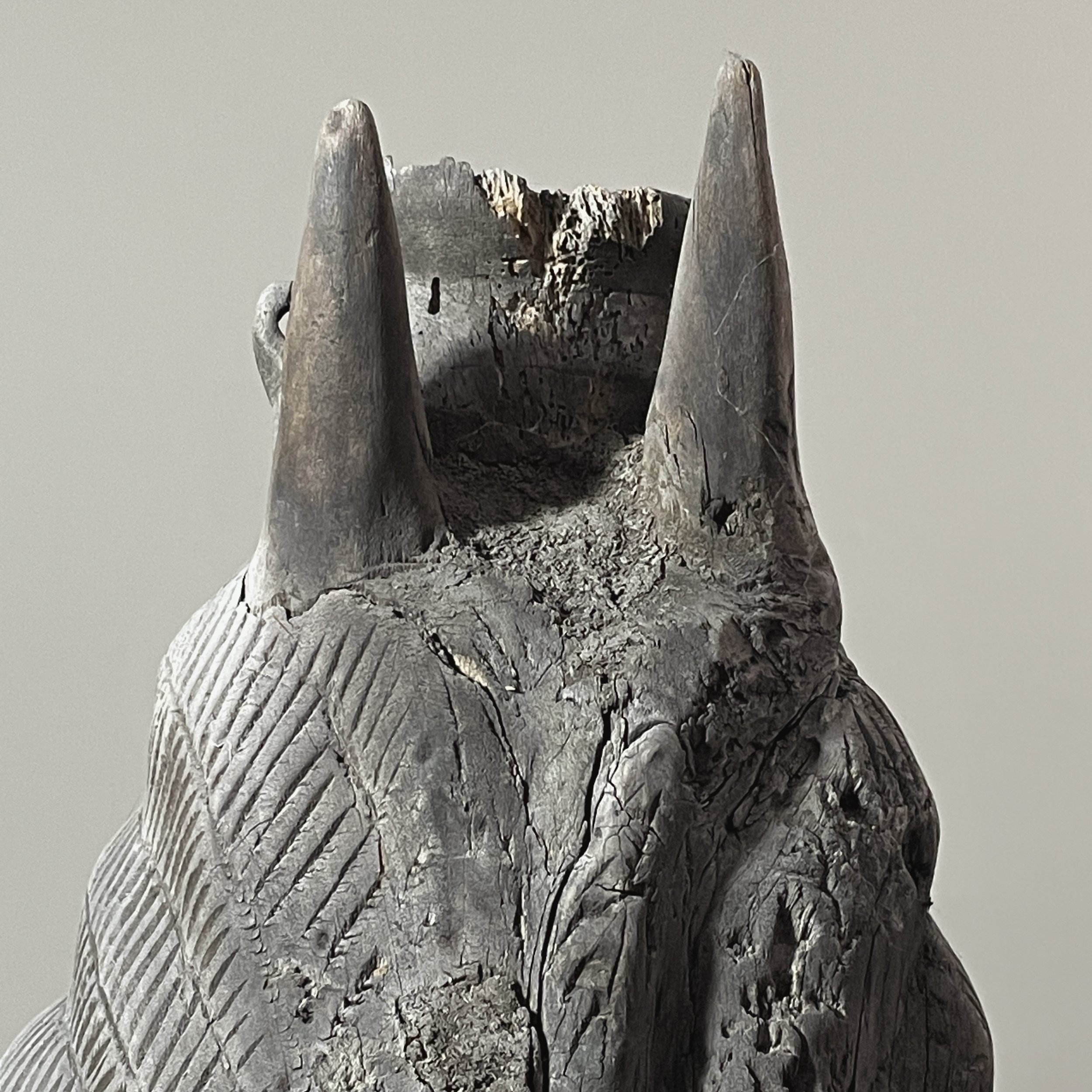 Image 11 of 13
Image 11 of 13

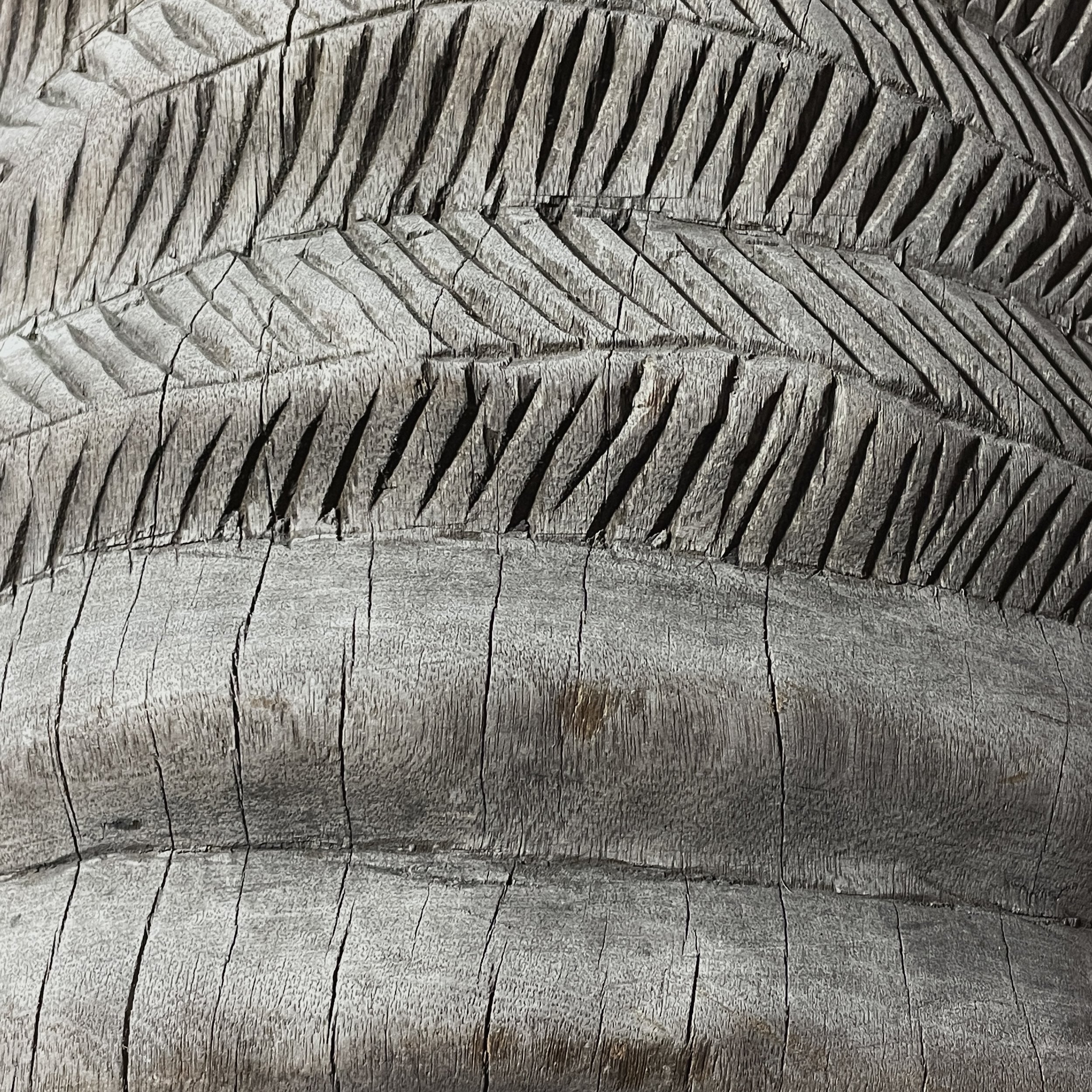 Image 12 of 13
Image 12 of 13

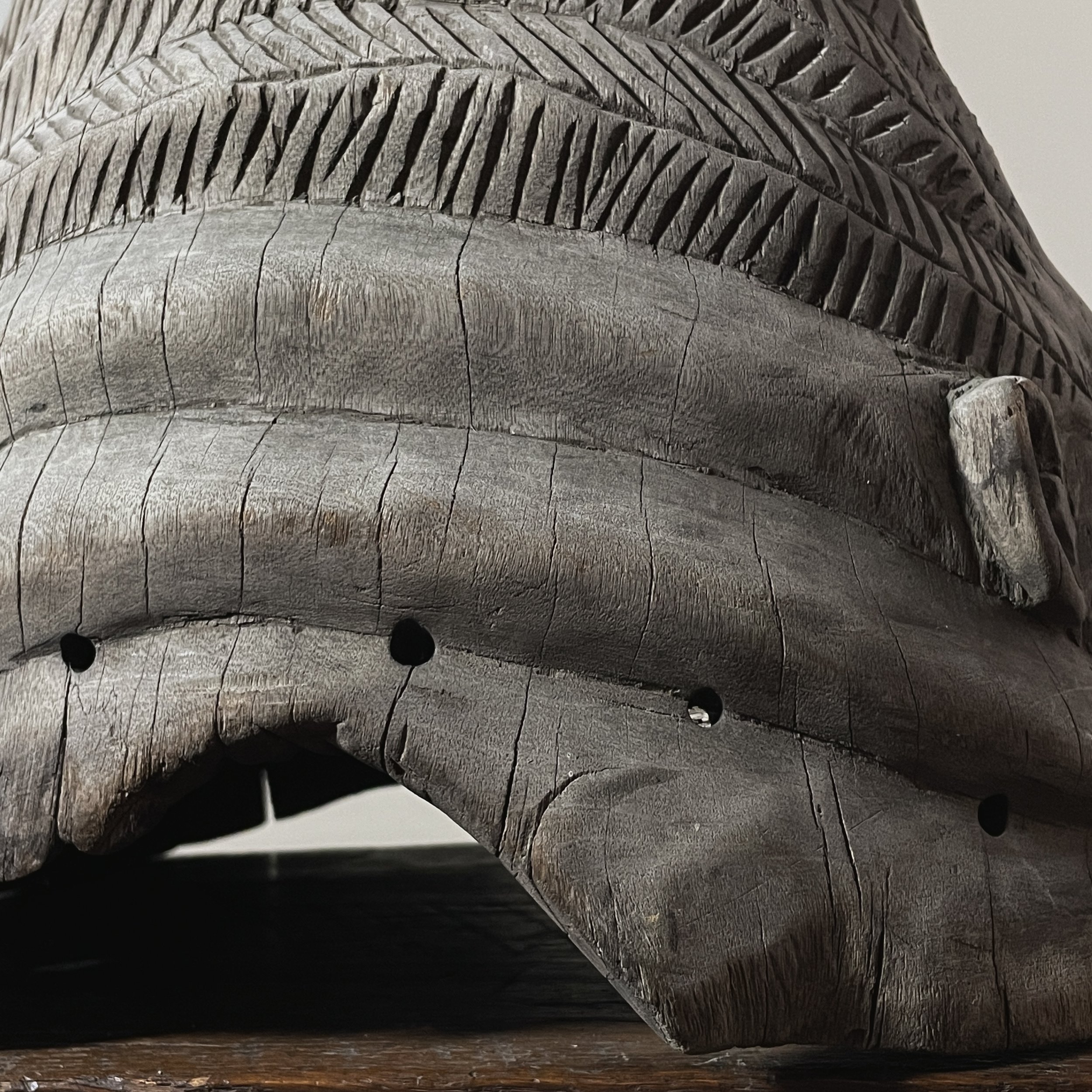 Image 13 of 13
Image 13 of 13














Rare Antique Mende Bundu Hand Carved Patinated Raw Wood Two Headed Mask
Antique Mende Bundu Hand Carved Patinated Raw Wood Two Headed Mask. A small carved pot sits at the top of the mask. One side has horns carved into the top near the pot. Etched detailing along the sides represents hair that connects both faces. Both faces are the traditional serene expression over elongating neck rings. Along the bottom is the original holes that would have been used to fasten the mask to the dancer. Note from the collector: this piece was used during the ritual/dances and would be left over a sacred spot in the ground after the event was finished. Hence the reason it has been weathered into a grey hue. In used condition with wear consistent with age.
Size: 14.75”H x 16”W x 10”D
Provenance: private African art collector in Delaware
Carved Wood Mende Bundu Masks are iconic artifacts of the Mende people, an ethnic group primarily located in Sierra Leone, West Africa. These masks are central to the Sande (or Bundu) Society, a powerful women's association that plays a significant role in Mende culture. The Sande Society is unique in being one of the few female-led secret societies in Africa, and it is responsible for initiating young girls into adulthood through rites of passage, teaching them cultural values, responsibilities, and skills.
The Bundu mask, worn by high-ranking Sande Society members during ceremonies, represents the ideals of feminine beauty, morality, and wisdom. The masks are carved from wood and are characterized by their polished black finish, intricate hairstyles, and serene facial features. The hairstyles often symbolize wealth, status, and cultural identity, while the full, rounded faces and small, delicate features reflect Mende ideals of female beauty. The masks are typically worn with a costume made of raffia and cloth, creating a striking visual presence during performances.
Historically, the creation of Bundu masks is a specialized craft, traditionally undertaken by male carvers who work closely with the Sande Society to ensure the masks meet cultural and spiritual standards. The masks are not merely decorative; they are believed to embody the spirit of the Sande Society's patron deity, Ndoli Jowei, who guides and protects the initiates.
The use of Bundu masks dates back centuries, with their origins deeply intertwined with Mende social and spiritual practices. They serve as a powerful symbol of female authority and community cohesion, as the Sande Society plays a vital role in maintaining social order and cultural continuity.
Antique Mende Bundu Hand Carved Patinated Raw Wood Two Headed Mask. A small carved pot sits at the top of the mask. One side has horns carved into the top near the pot. Etched detailing along the sides represents hair that connects both faces. Both faces are the traditional serene expression over elongating neck rings. Along the bottom is the original holes that would have been used to fasten the mask to the dancer. Note from the collector: this piece was used during the ritual/dances and would be left over a sacred spot in the ground after the event was finished. Hence the reason it has been weathered into a grey hue. In used condition with wear consistent with age.
Size: 14.75”H x 16”W x 10”D
Provenance: private African art collector in Delaware
Carved Wood Mende Bundu Masks are iconic artifacts of the Mende people, an ethnic group primarily located in Sierra Leone, West Africa. These masks are central to the Sande (or Bundu) Society, a powerful women's association that plays a significant role in Mende culture. The Sande Society is unique in being one of the few female-led secret societies in Africa, and it is responsible for initiating young girls into adulthood through rites of passage, teaching them cultural values, responsibilities, and skills.
The Bundu mask, worn by high-ranking Sande Society members during ceremonies, represents the ideals of feminine beauty, morality, and wisdom. The masks are carved from wood and are characterized by their polished black finish, intricate hairstyles, and serene facial features. The hairstyles often symbolize wealth, status, and cultural identity, while the full, rounded faces and small, delicate features reflect Mende ideals of female beauty. The masks are typically worn with a costume made of raffia and cloth, creating a striking visual presence during performances.
Historically, the creation of Bundu masks is a specialized craft, traditionally undertaken by male carvers who work closely with the Sande Society to ensure the masks meet cultural and spiritual standards. The masks are not merely decorative; they are believed to embody the spirit of the Sande Society's patron deity, Ndoli Jowei, who guides and protects the initiates.
The use of Bundu masks dates back centuries, with their origins deeply intertwined with Mende social and spiritual practices. They serve as a powerful symbol of female authority and community cohesion, as the Sande Society plays a vital role in maintaining social order and cultural continuity.
Antique Mende Bundu Hand Carved Patinated Raw Wood Two Headed Mask. A small carved pot sits at the top of the mask. One side has horns carved into the top near the pot. Etched detailing along the sides represents hair that connects both faces. Both faces are the traditional serene expression over elongating neck rings. Along the bottom is the original holes that would have been used to fasten the mask to the dancer. Note from the collector: this piece was used during the ritual/dances and would be left over a sacred spot in the ground after the event was finished. Hence the reason it has been weathered into a grey hue. In used condition with wear consistent with age.
Size: 14.75”H x 16”W x 10”D
Provenance: private African art collector in Delaware
Carved Wood Mende Bundu Masks are iconic artifacts of the Mende people, an ethnic group primarily located in Sierra Leone, West Africa. These masks are central to the Sande (or Bundu) Society, a powerful women's association that plays a significant role in Mende culture. The Sande Society is unique in being one of the few female-led secret societies in Africa, and it is responsible for initiating young girls into adulthood through rites of passage, teaching them cultural values, responsibilities, and skills.
The Bundu mask, worn by high-ranking Sande Society members during ceremonies, represents the ideals of feminine beauty, morality, and wisdom. The masks are carved from wood and are characterized by their polished black finish, intricate hairstyles, and serene facial features. The hairstyles often symbolize wealth, status, and cultural identity, while the full, rounded faces and small, delicate features reflect Mende ideals of female beauty. The masks are typically worn with a costume made of raffia and cloth, creating a striking visual presence during performances.
Historically, the creation of Bundu masks is a specialized craft, traditionally undertaken by male carvers who work closely with the Sande Society to ensure the masks meet cultural and spiritual standards. The masks are not merely decorative; they are believed to embody the spirit of the Sande Society's patron deity, Ndoli Jowei, who guides and protects the initiates.
The use of Bundu masks dates back centuries, with their origins deeply intertwined with Mende social and spiritual practices. They serve as a powerful symbol of female authority and community cohesion, as the Sande Society plays a vital role in maintaining social order and cultural continuity.

